It really is red.
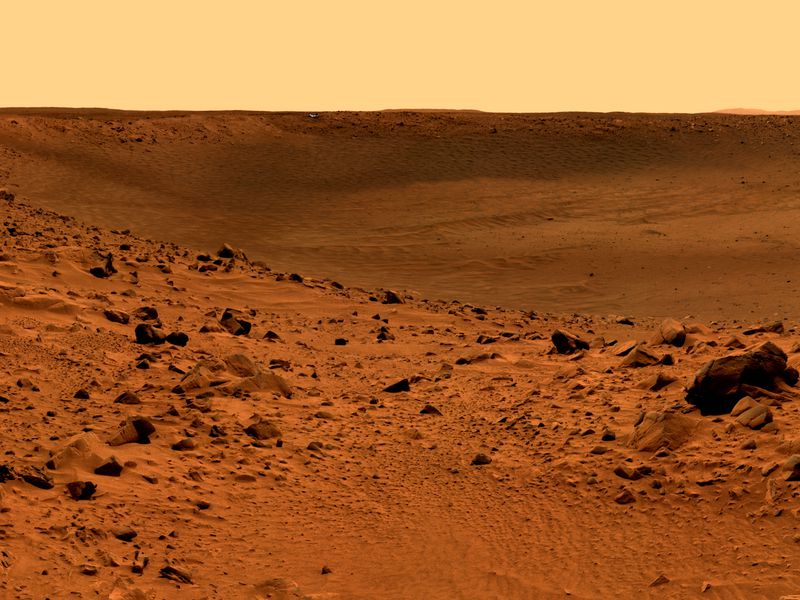
Oh, wait a minute – that’s a photo of the surface of Mars. This is a photo of the Australian landscape as viewed from our maiden voyage in a helicopter.
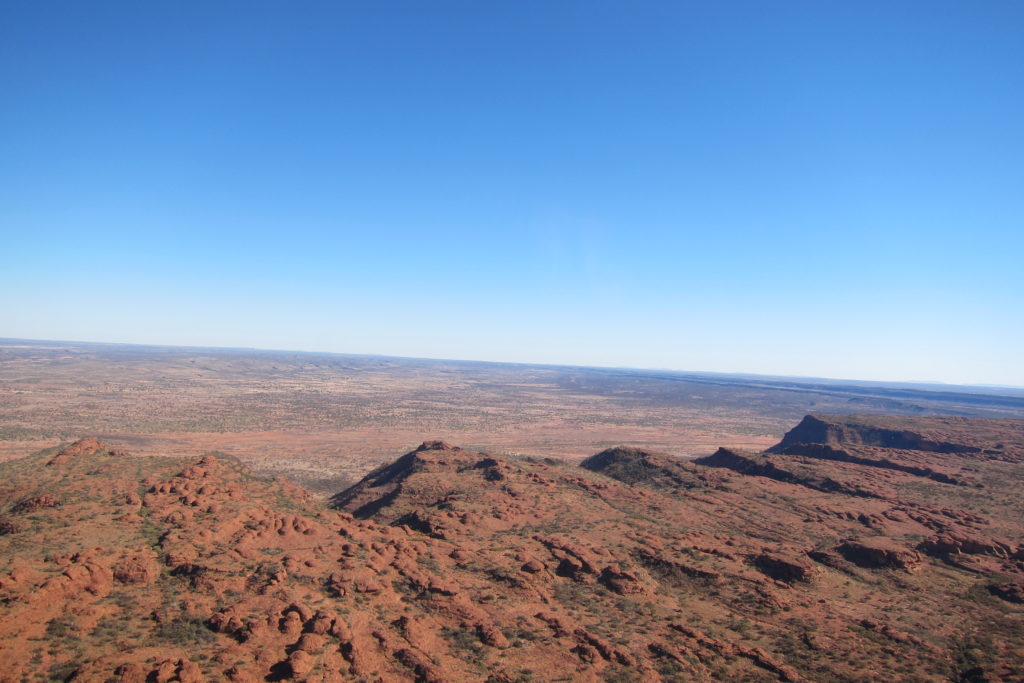
We drive down the Stuart Highway to Alice Springs.
Alice Springs isn’t the most picturesque of towns. It’s the closest thing to urban that we see in a while, so we spend a few days here. We visit a few museums, such as the excellent Central Australia Museum.
The Central Australian Aviation Museum tells the story of flying in the outback. It has lots of nifty aircraft, too.
These are both in the Araluen Cultural District, conveniently just across the street from our caravan park.
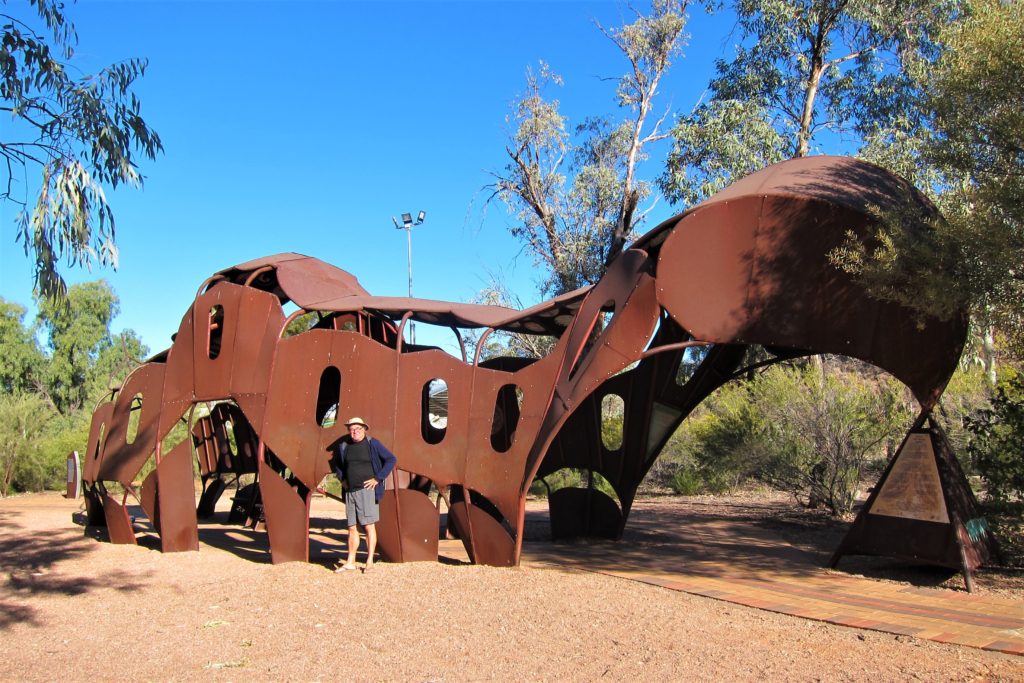
Megafauna Central is another impressive museum just opened in town. It features the story of big animals that used to exist until the arrival of humans in Australia, then became extinct shortly thereafter. Just like North America, where megafauna roamed the continent until the arrival of humans. Coincidence? I think not.
The grounds of our caravan park are home to birdlife galore. A flock of galahs do a Galah Quadrille on the front lawn.
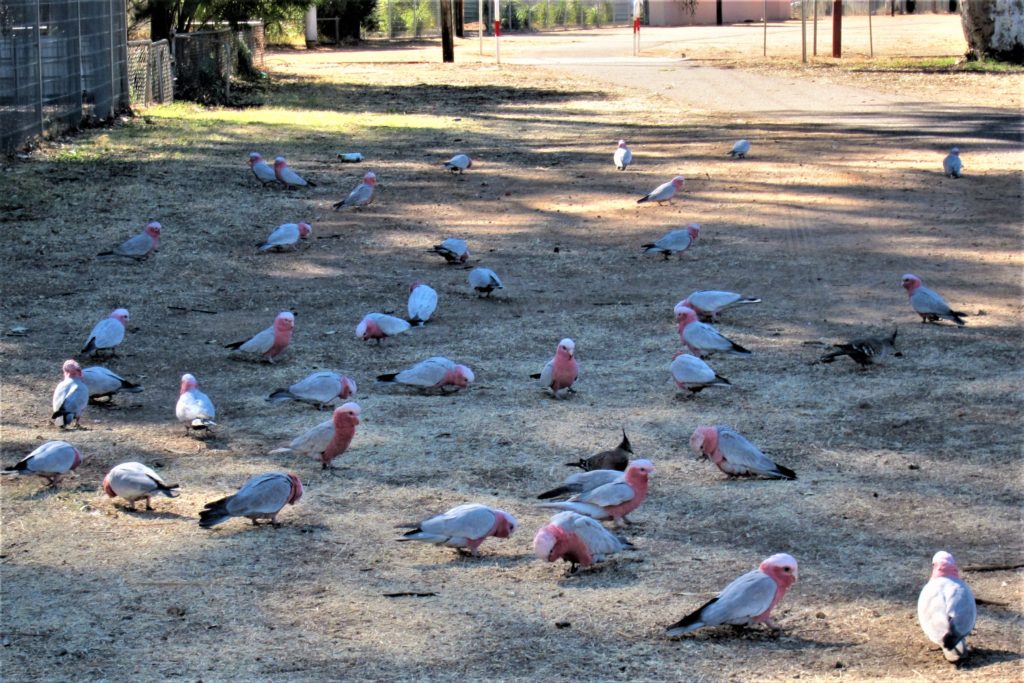
(You may notice that we really like galahs.)
We want to visit the secret CIA base at Pine Gap, but can’t even find a road sign to it. No big surprise.
On the way out of town, we pass a memorial to John Flynn. John Flynn is the man who started the Flying Doctor Service in 1923, as related in another entry.
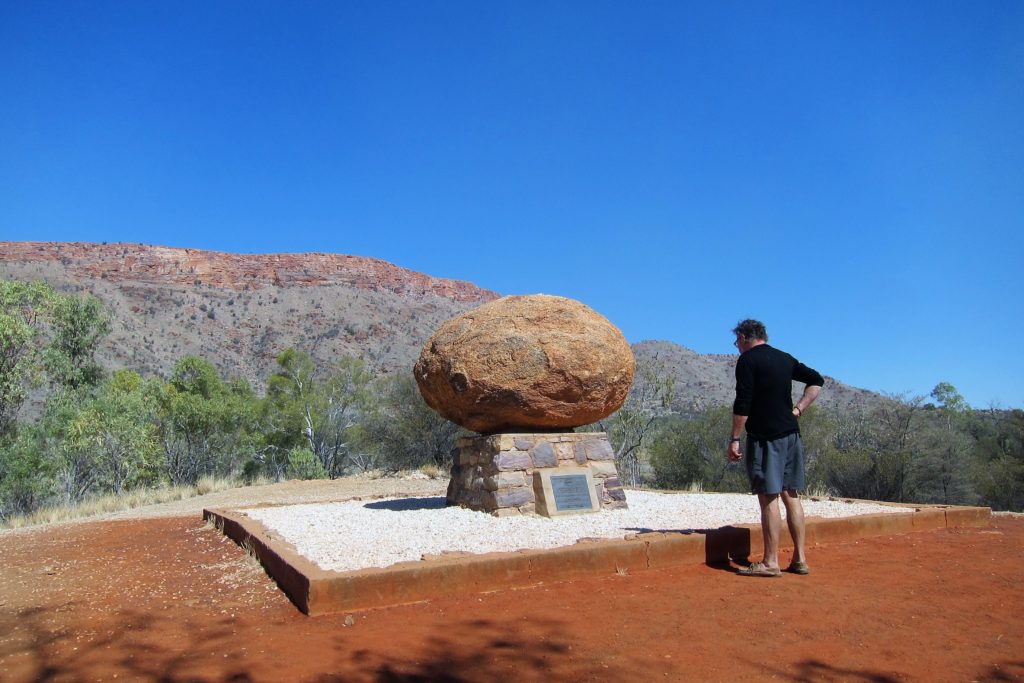
We do a loop near the West MacDonnell Range.
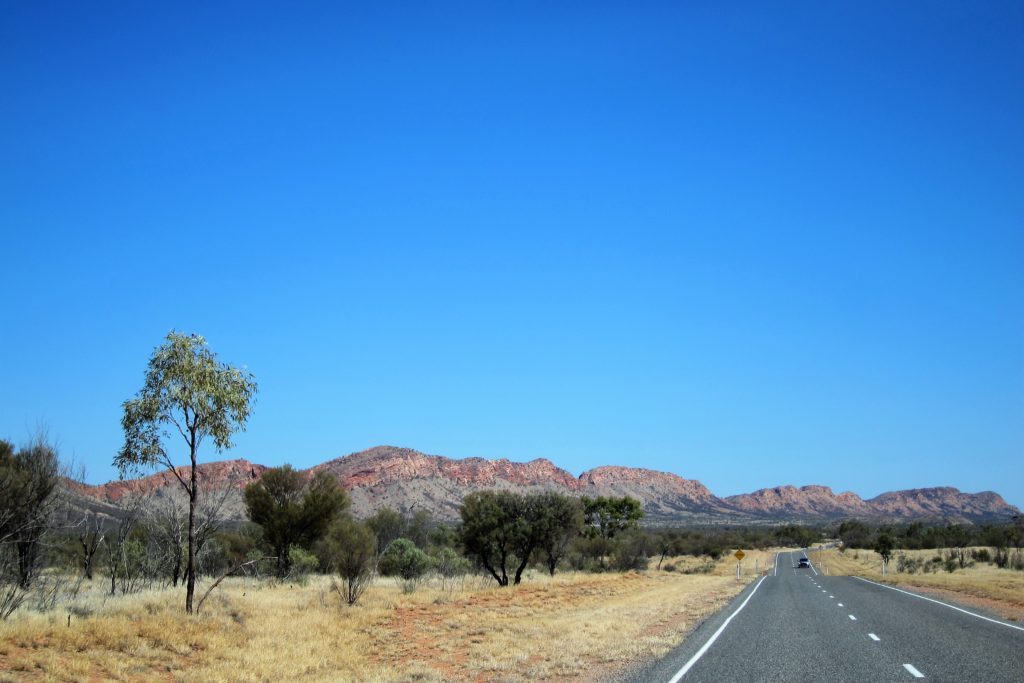
Along the way, we stop at these places:
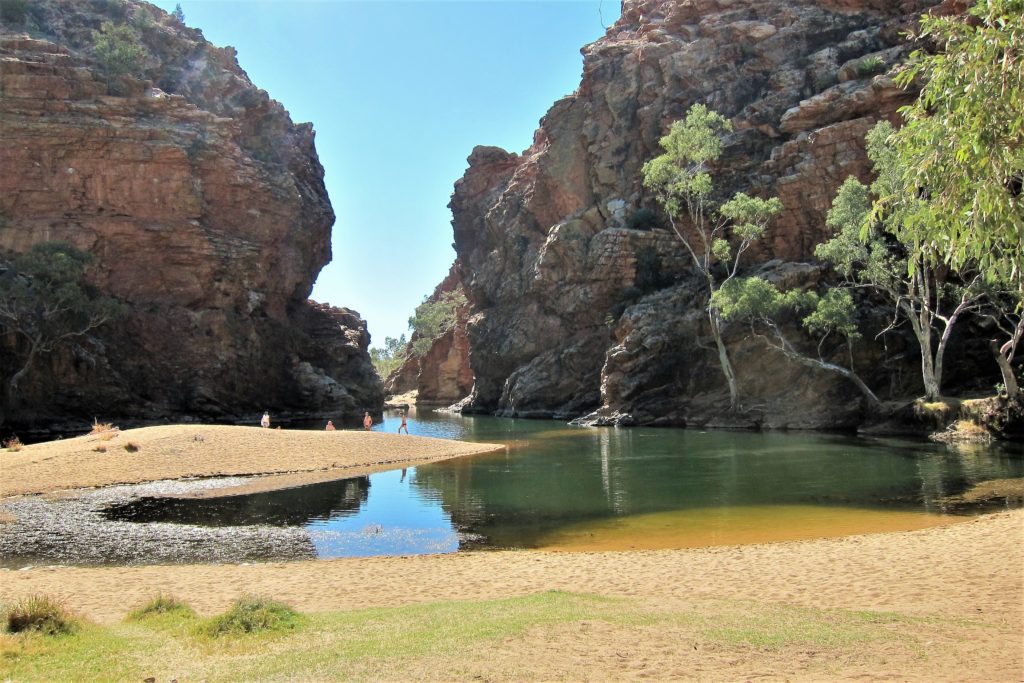
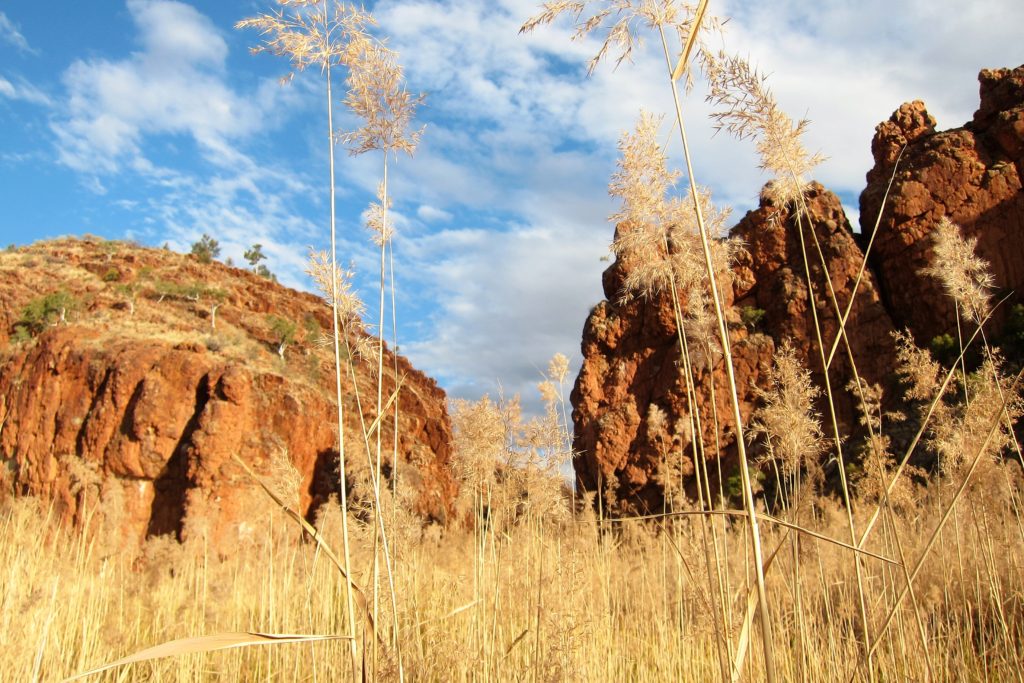
We spend the night at Glen Helen.
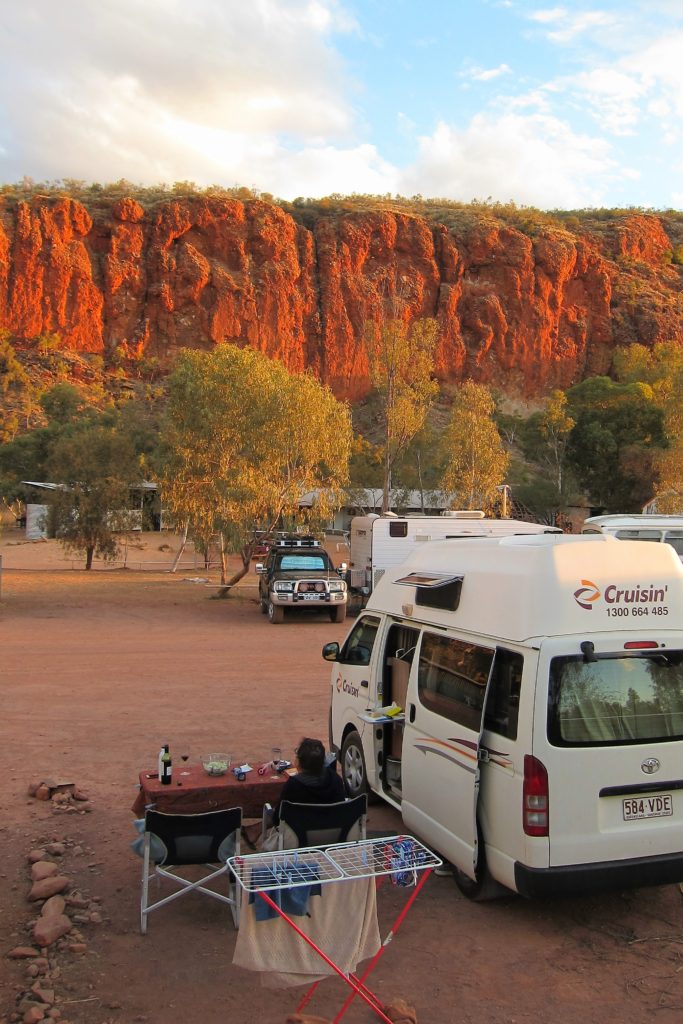
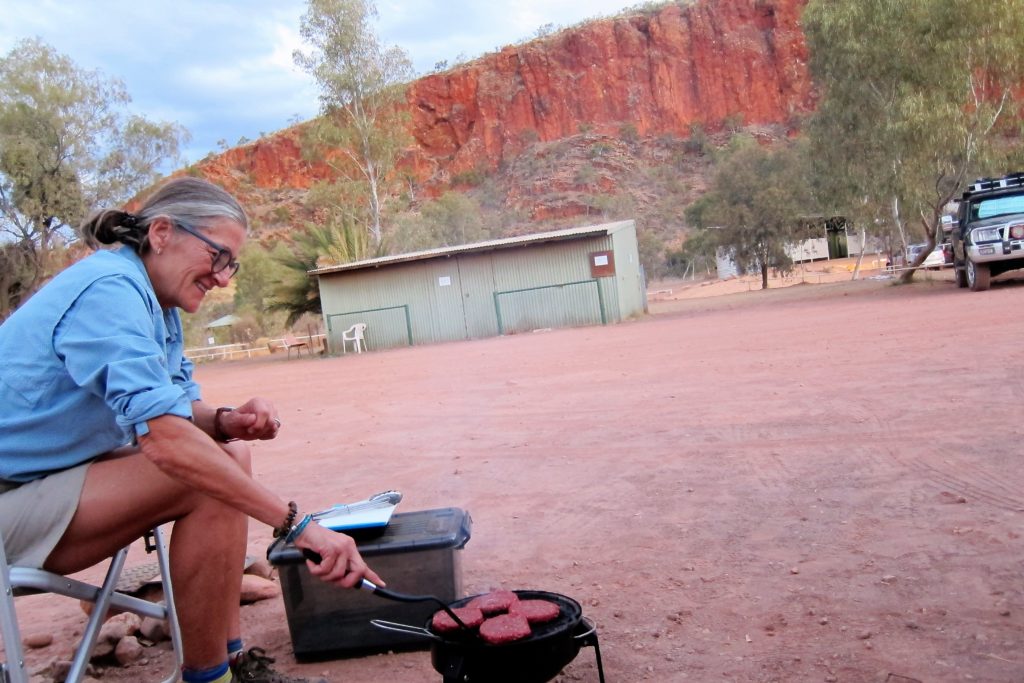
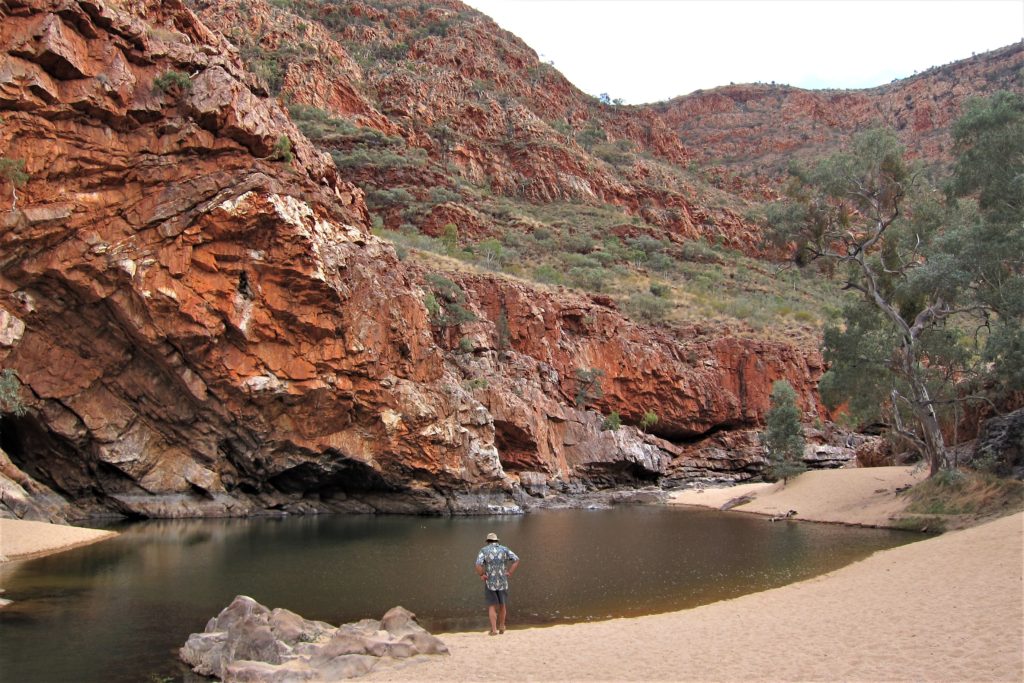
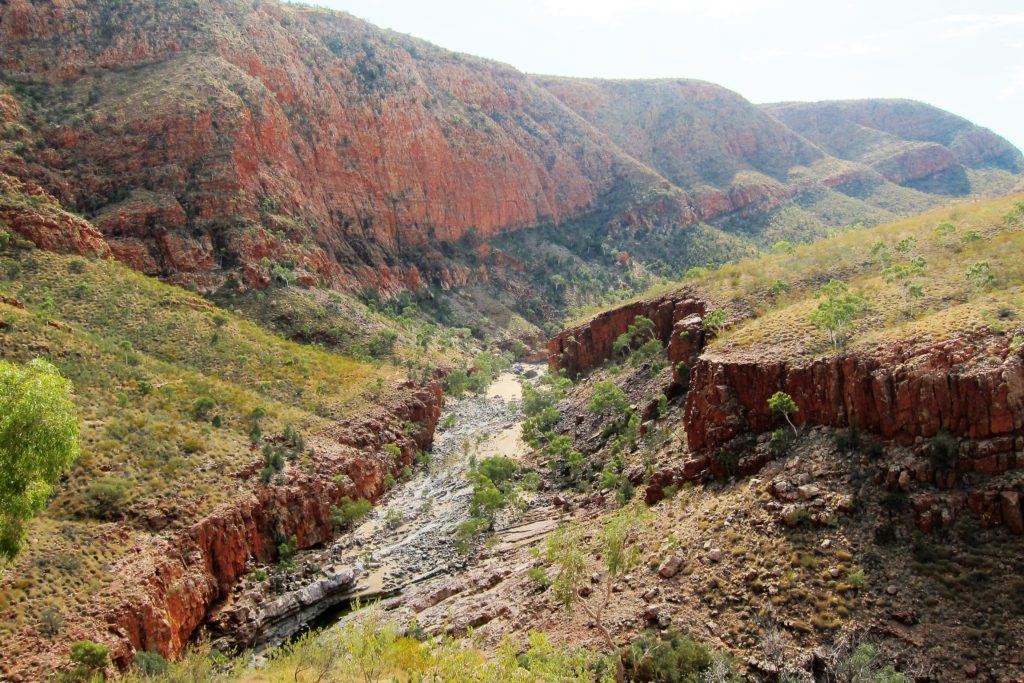
We see the crater of Tnorala in the distance. The Cole’s Notes version of its origins:
‘Scientists believe that around 142.5 million years ago an object from space, believed to be a comet about 600m wide, crashed to earth, blasting a crater roughly 20km across. Today’s land surface is about 2km lower than the original impact surface and the bluff is about 5km in diameter, reduced over time by erosion.’
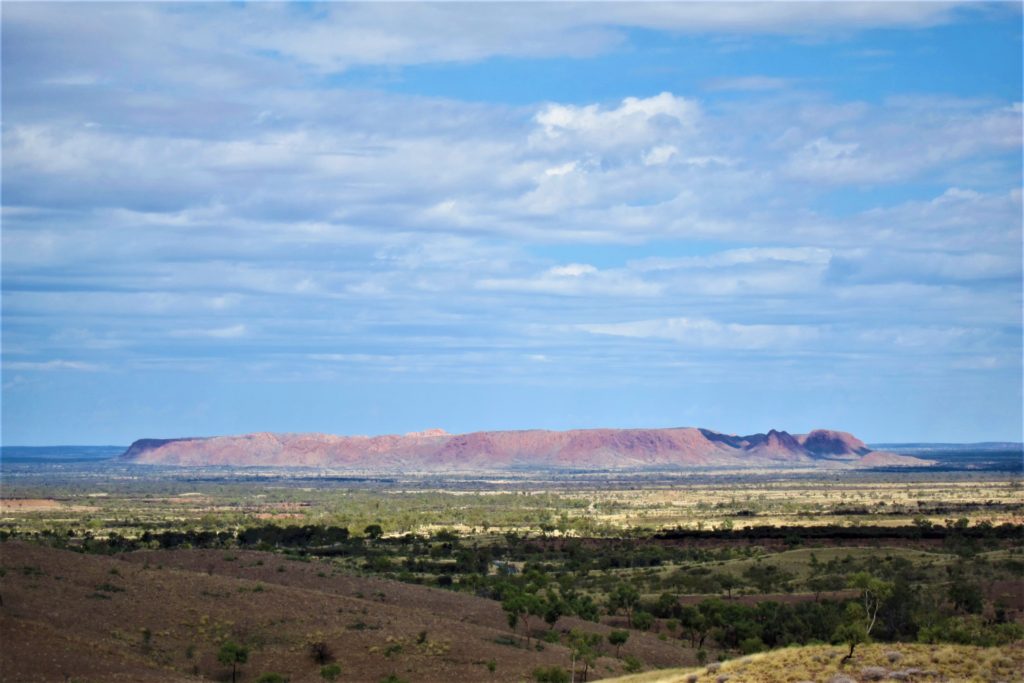
This is the house of artist Albert Namatjira. We first hear of him at the Queensland Art Gallery. We rave about the QAG in an earlier post.
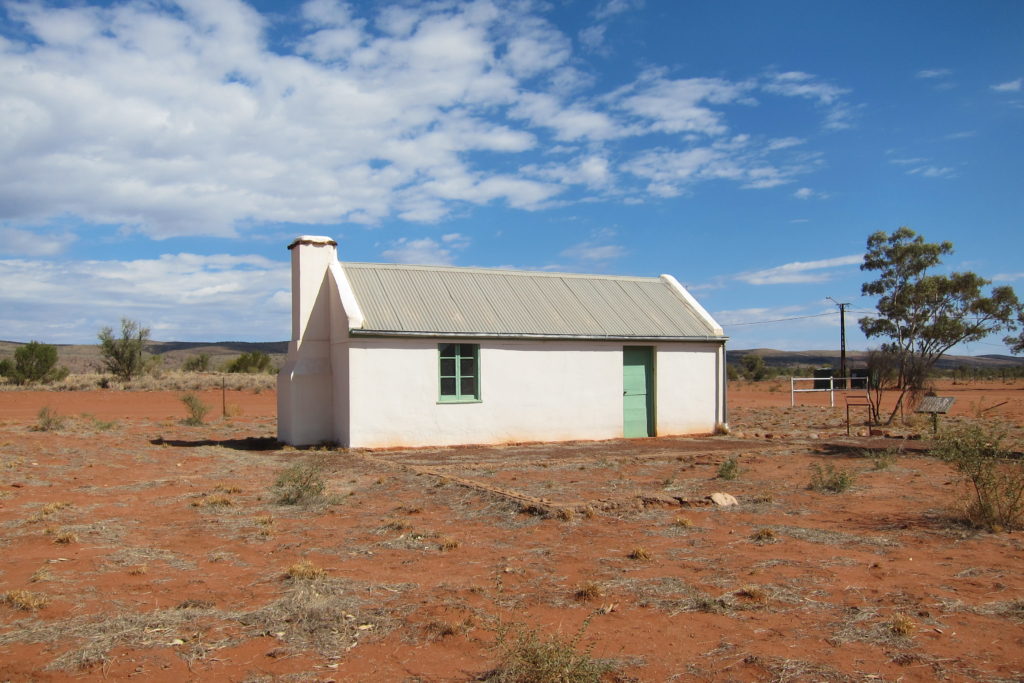
Hermannsburg itself is an interesting place.
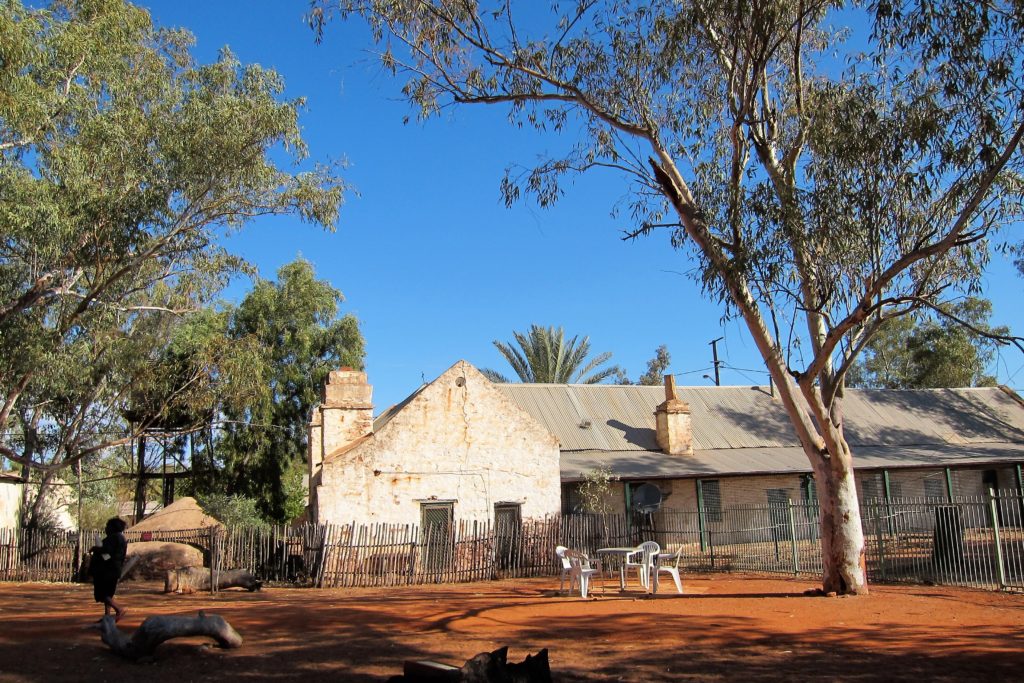
A mission founded by hardy – or optimistic – Germans in the 1870’s.
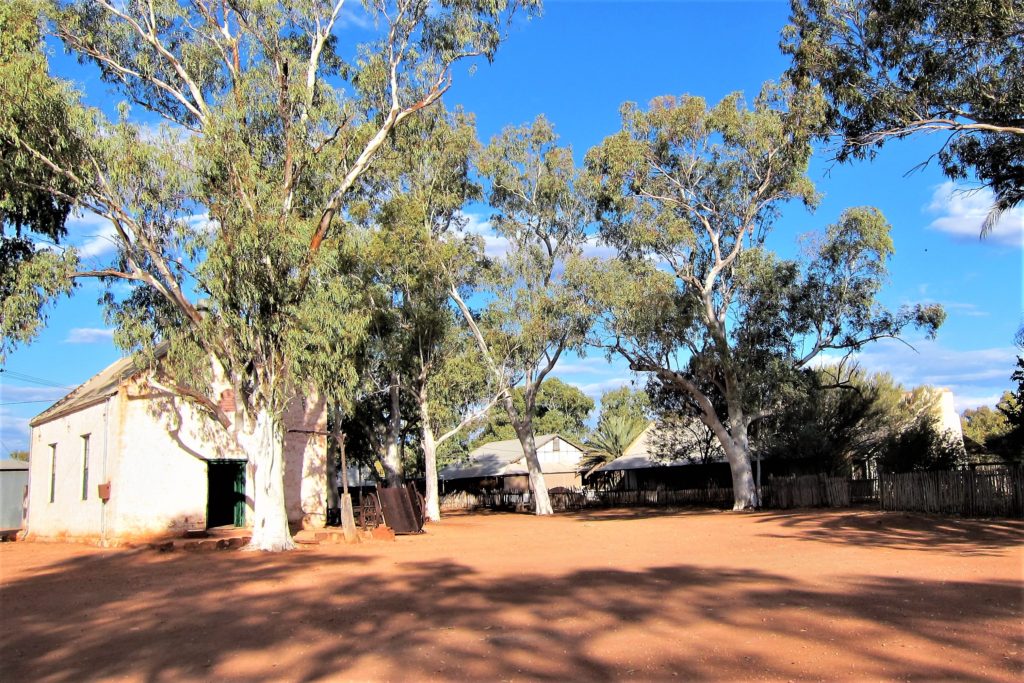
Also home of the Hermannsburg Potters, whom we also first hear about at the Queensland Art Gallery. We consider purchasing one of their pieces but don’t find anything that matches our living-room curtains. Just kidding.
People in Hermannsburg let their stock wander free around town.
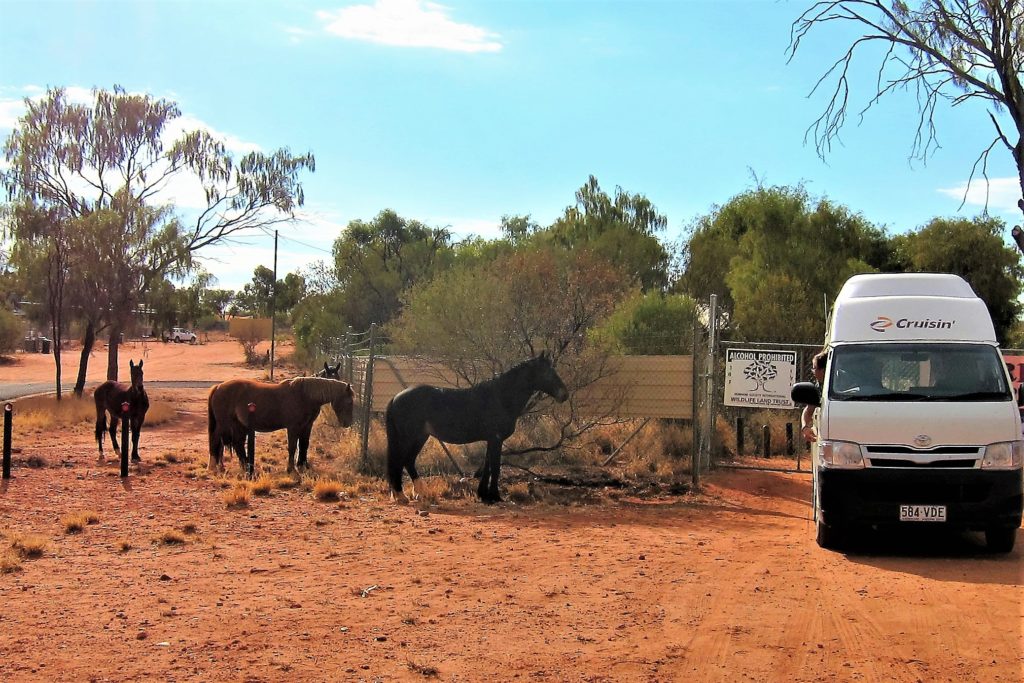
Returning to Alice Springs on our way south, we visit the Desert Park. This is a good place to see elusive denizens of the outback up close.
Like these thorny devils.
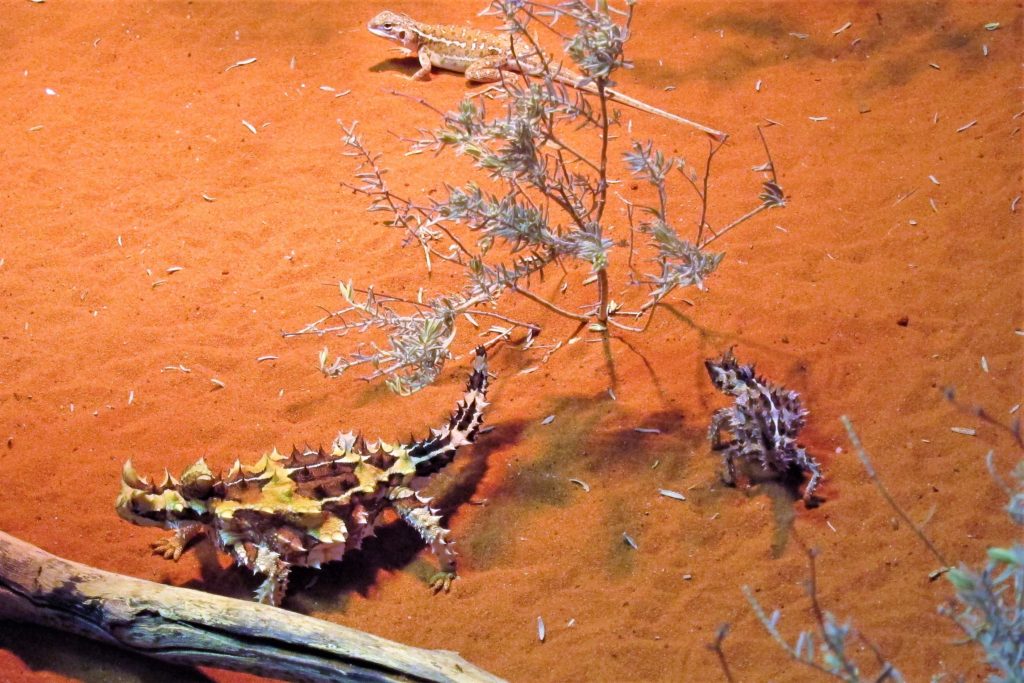
Or these beautiful red-tailed black cockatoos.
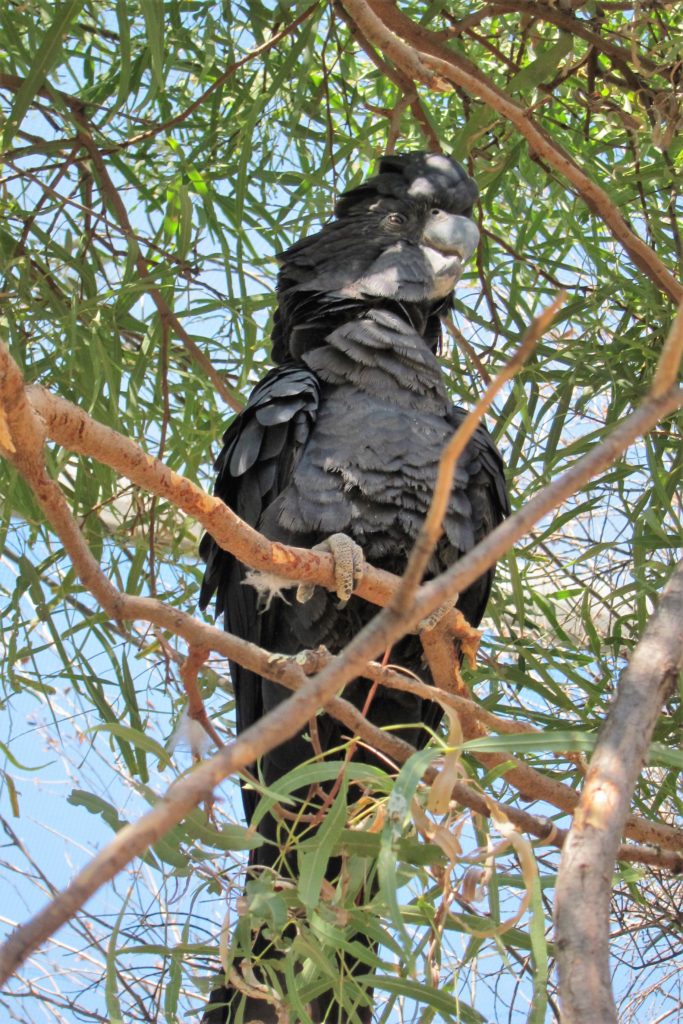
And this banded lapwing, fussing over her eggs.
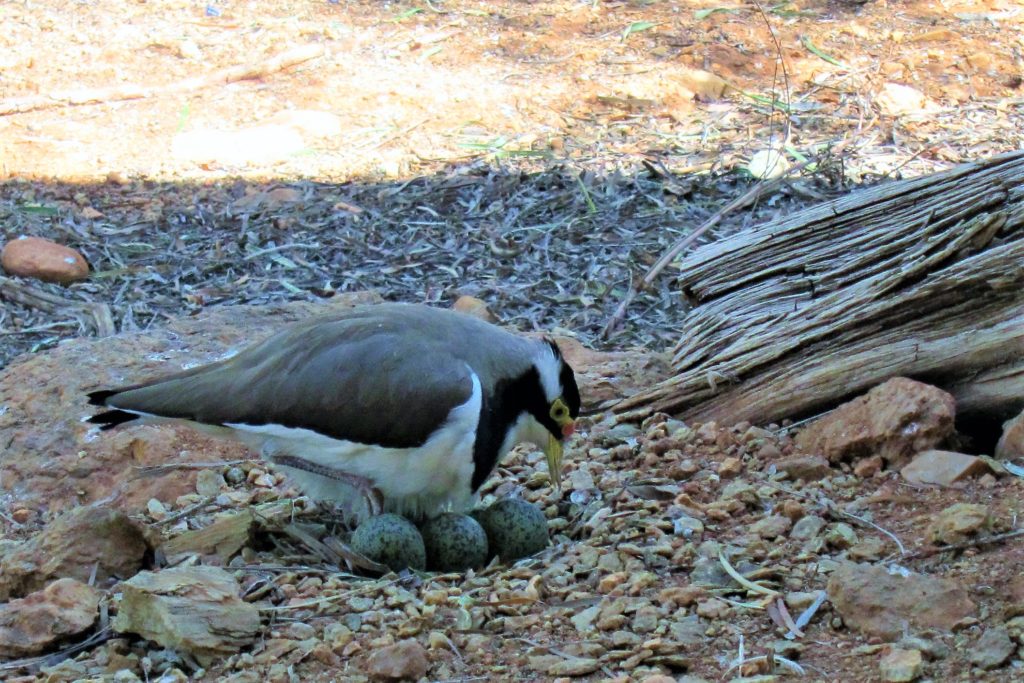
Even some dingoes.
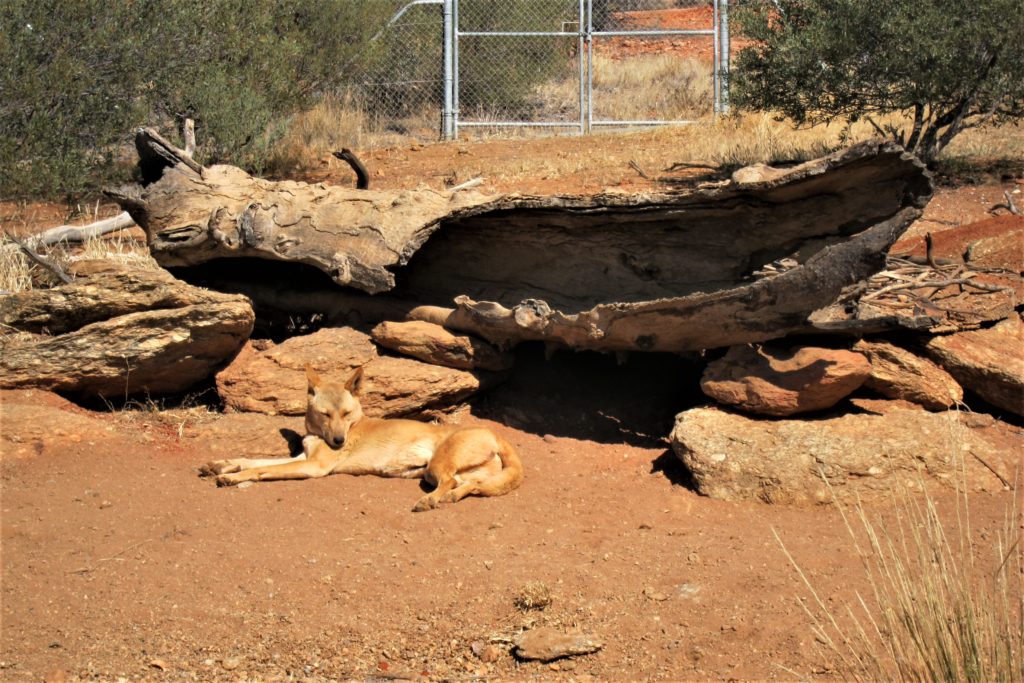
More about dingoes to come.
Heading south, we detour to visit the Henbury meteor craters.
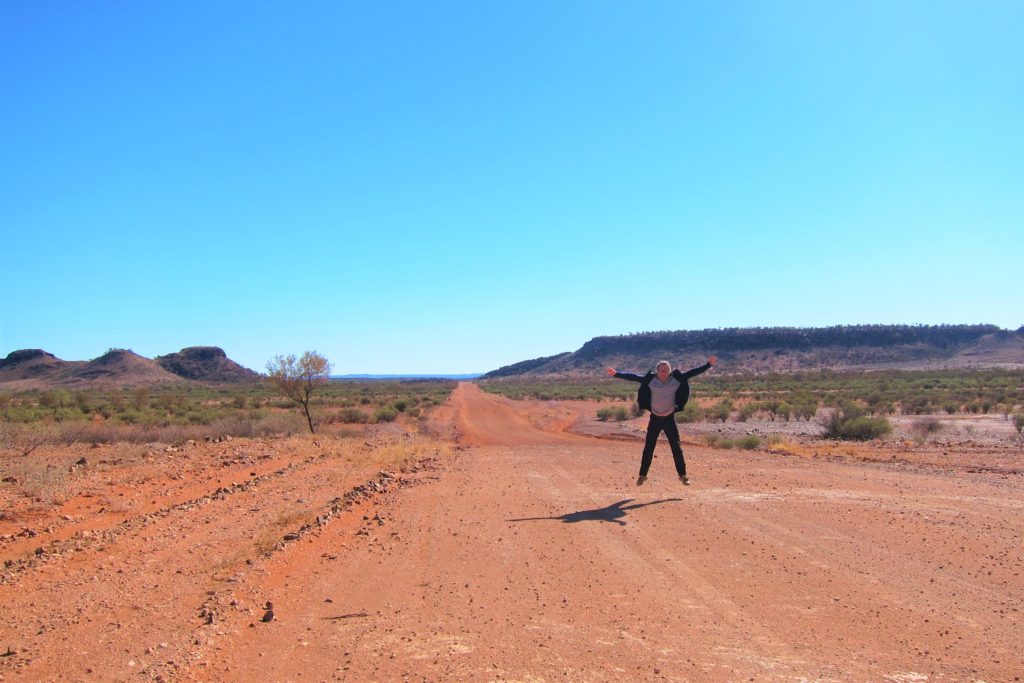
This is a place of splendid isolation. Fifteen kilometres down a dirt track deters casual visitors.
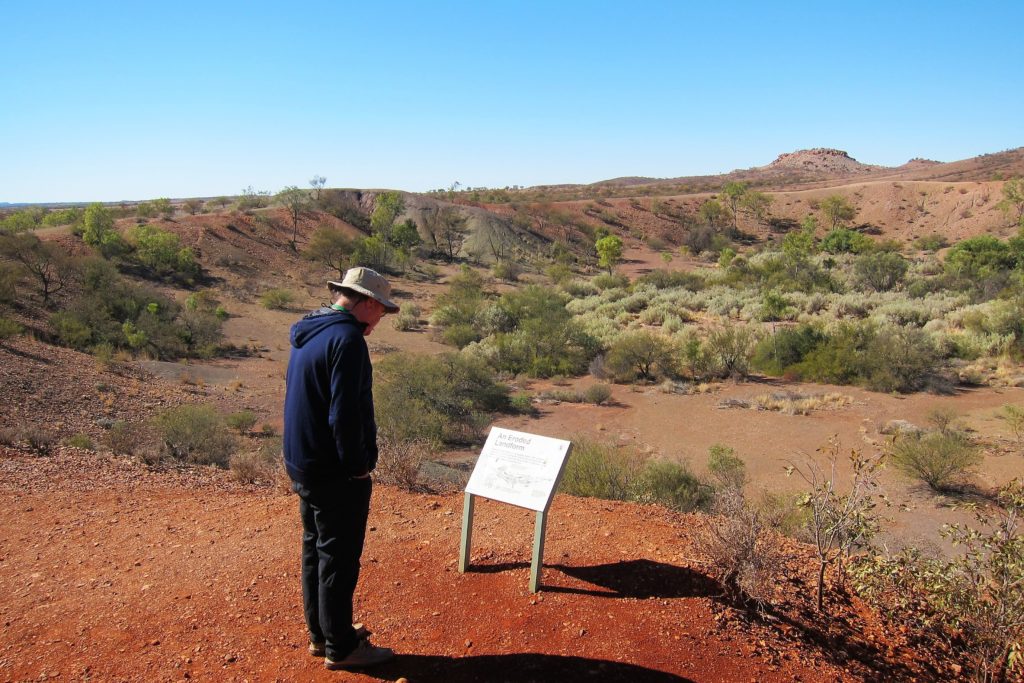
Turns out you can camp here. We plan to do so on our way back north. No amenities but an outhouse (delightfully known here as a ‘dunny’).
On the Lasseter Highway. People sometimes mistake their first glimpse of Mount Connor for Ayer’s Rock.
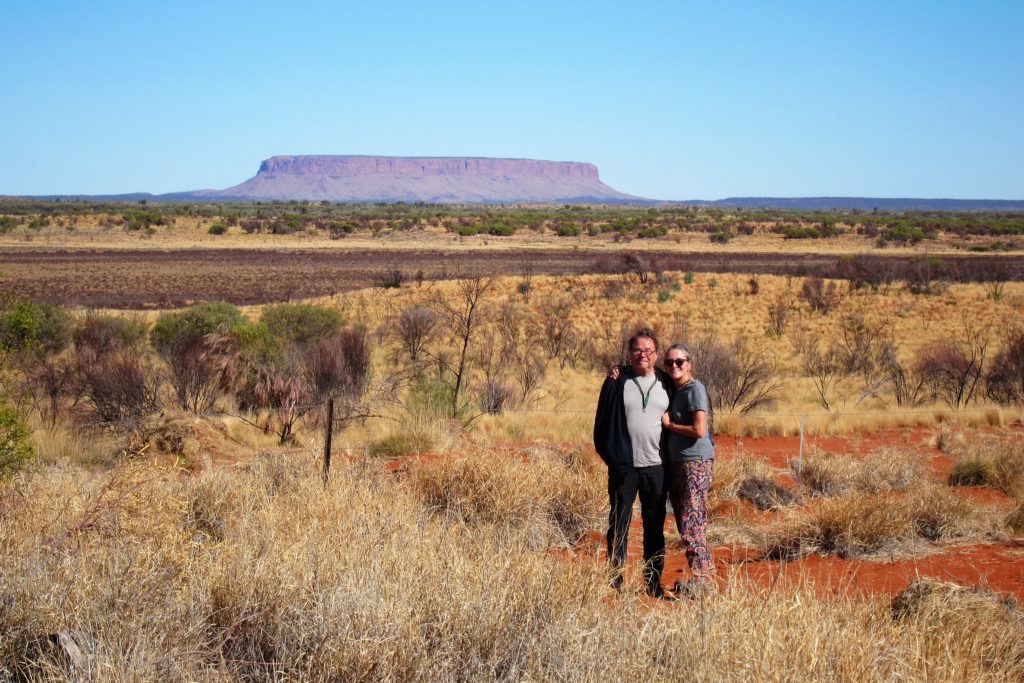
We spend a few days around Ayer’s Rock (or Uluru).
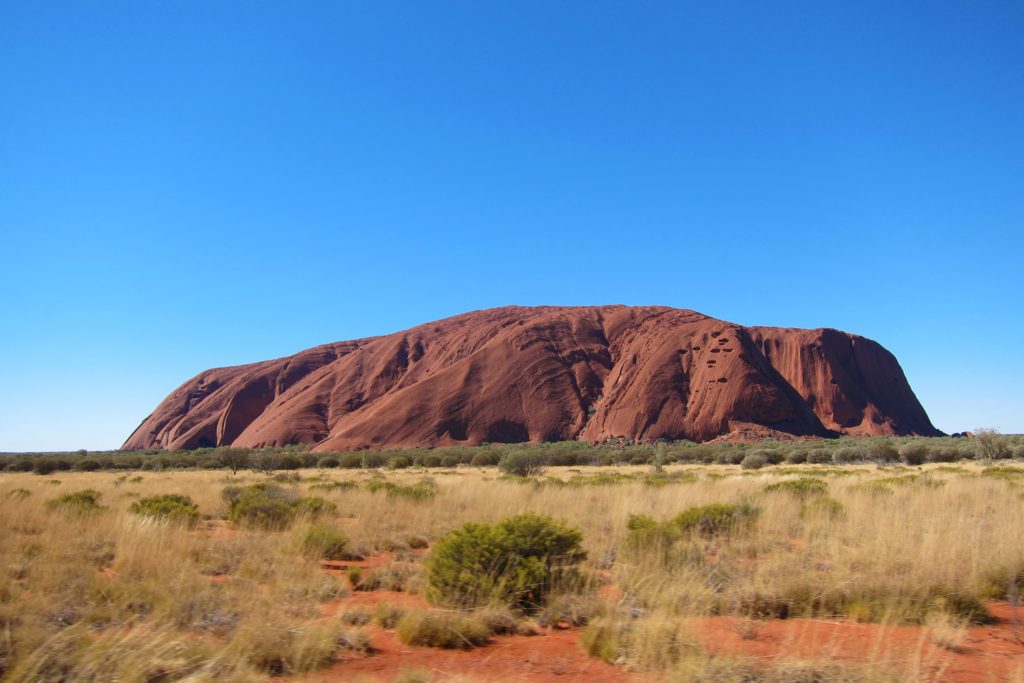
A quote from the Lonely Planet Australia guide:
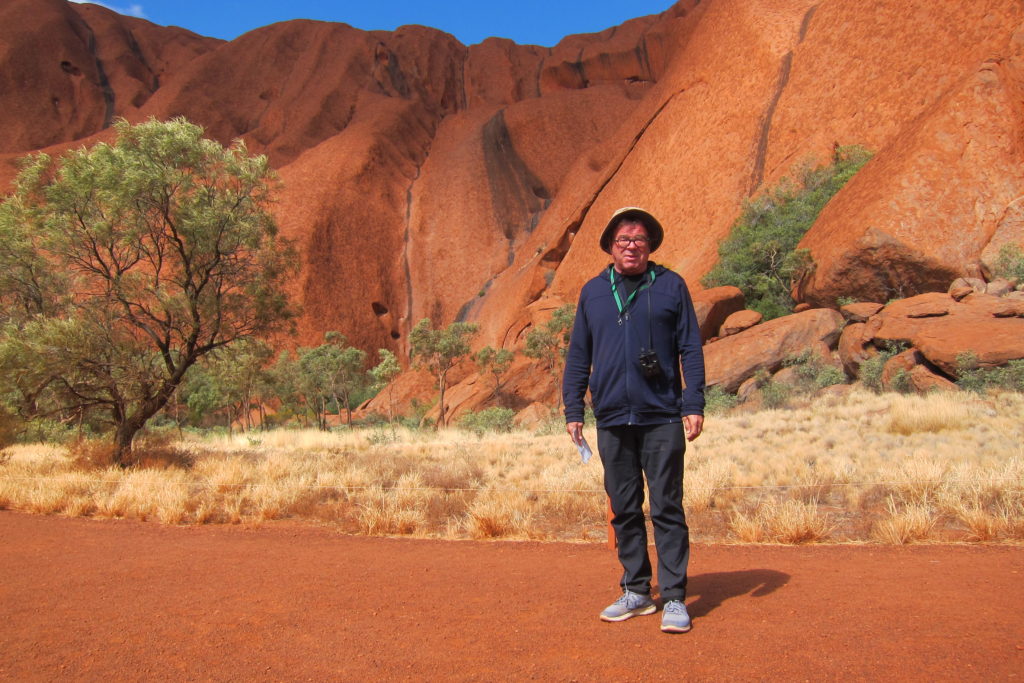
Different sections of the rock have their own characteristics.
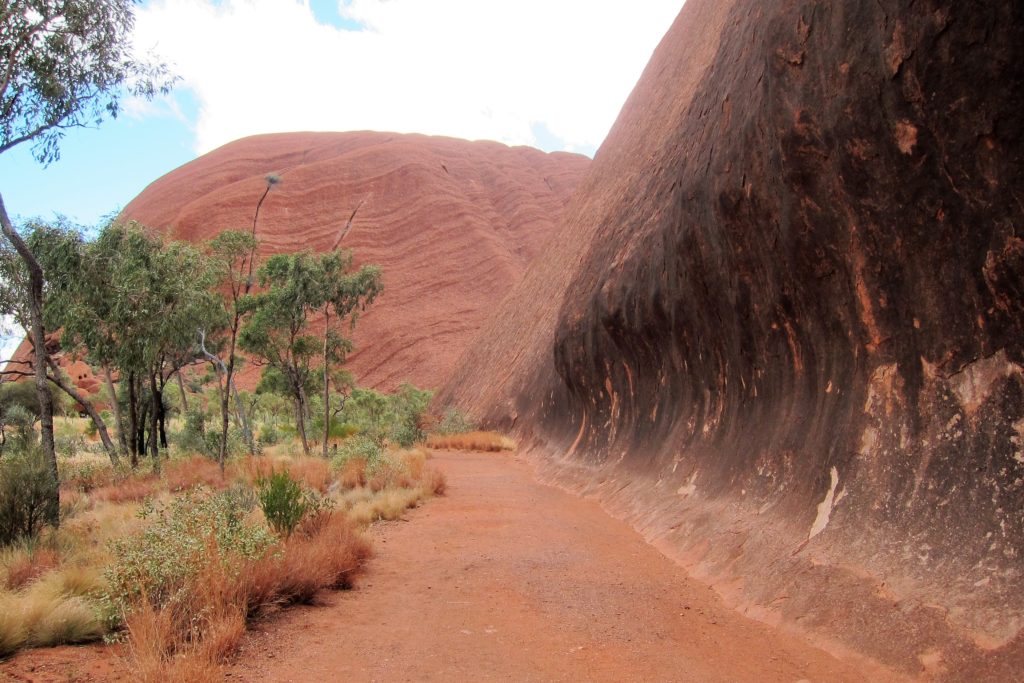
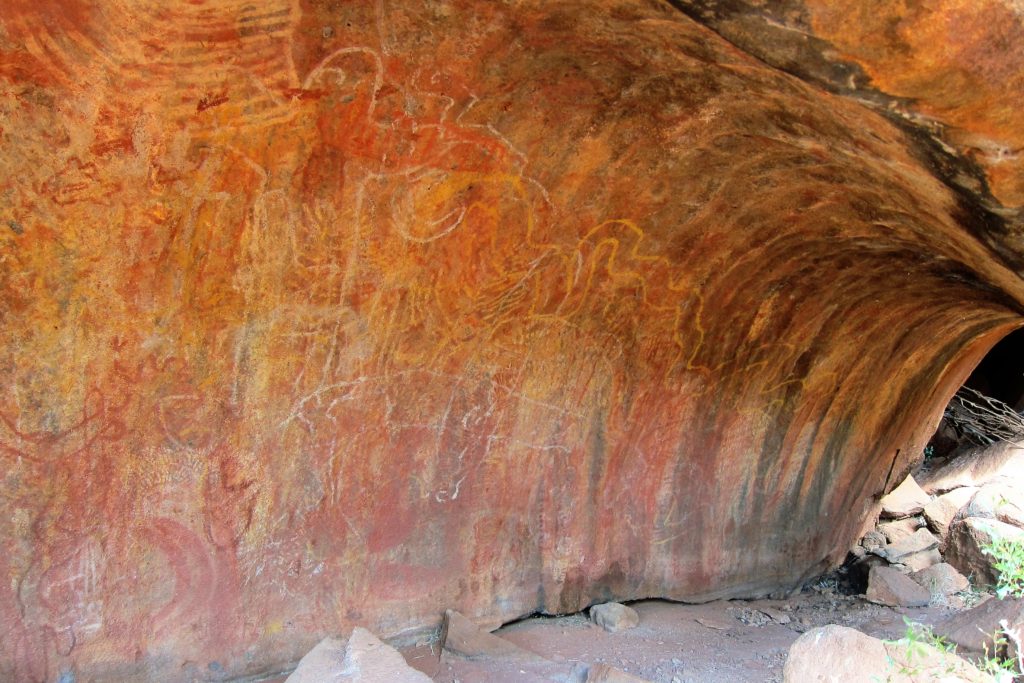
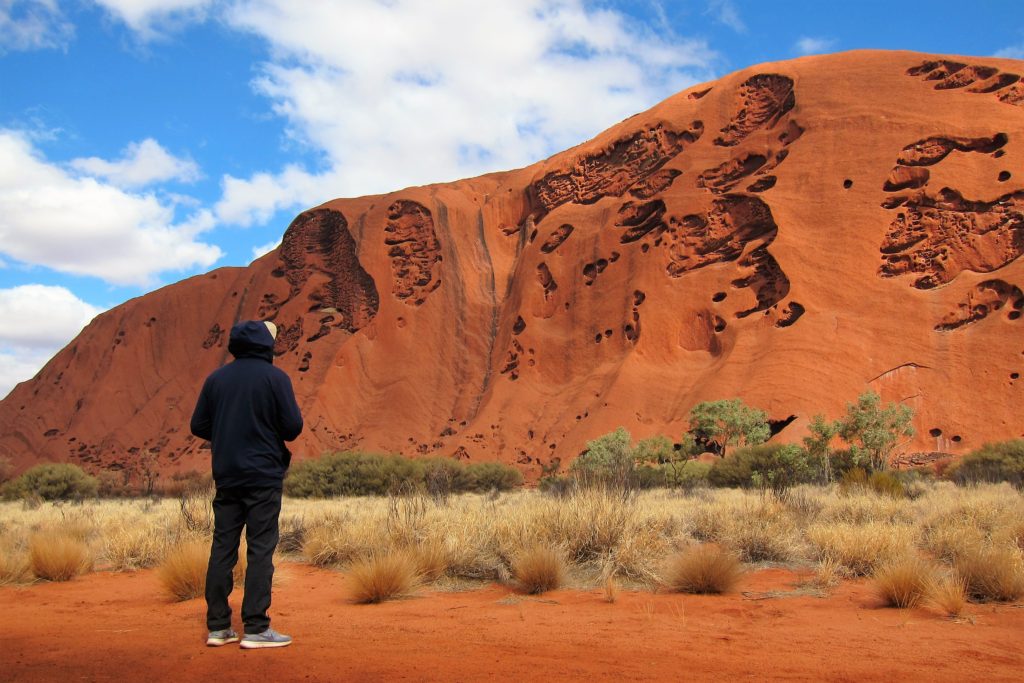
We also go to the Olgas (Kata Tjuta) a couple of times.
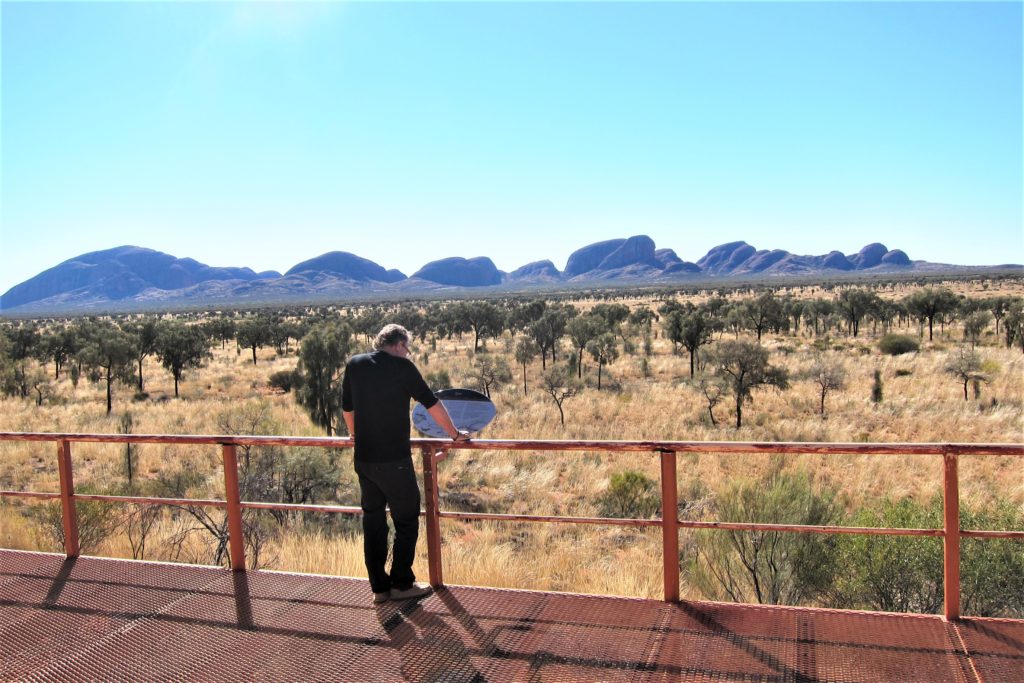
We do some hiking in the area.
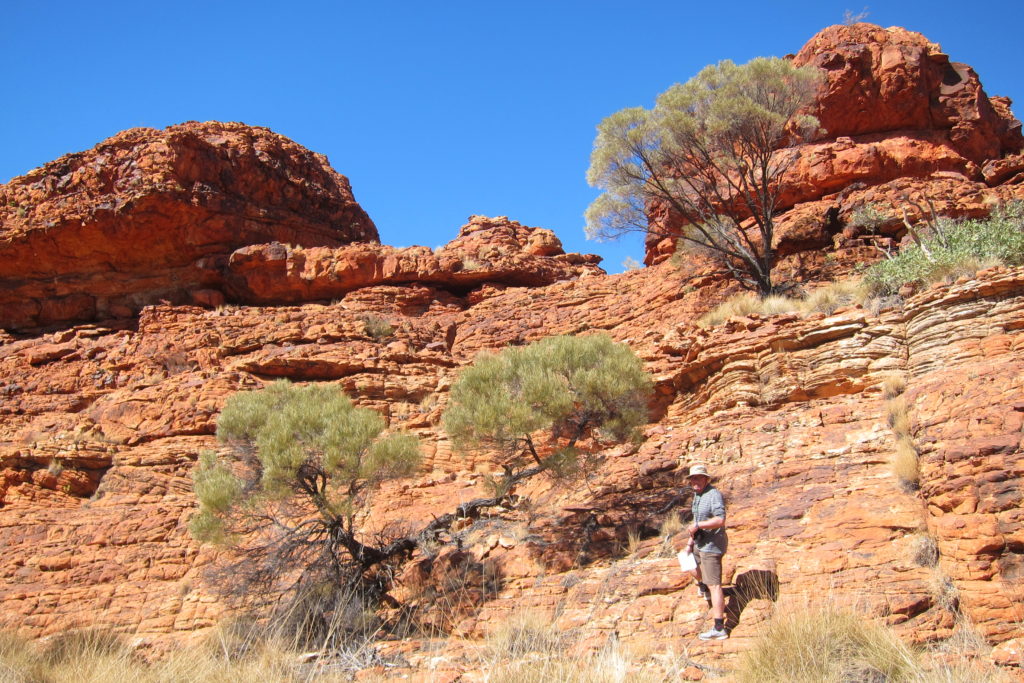
Eventually we pack up and drive a few hundred KMs to King’s Canyon.
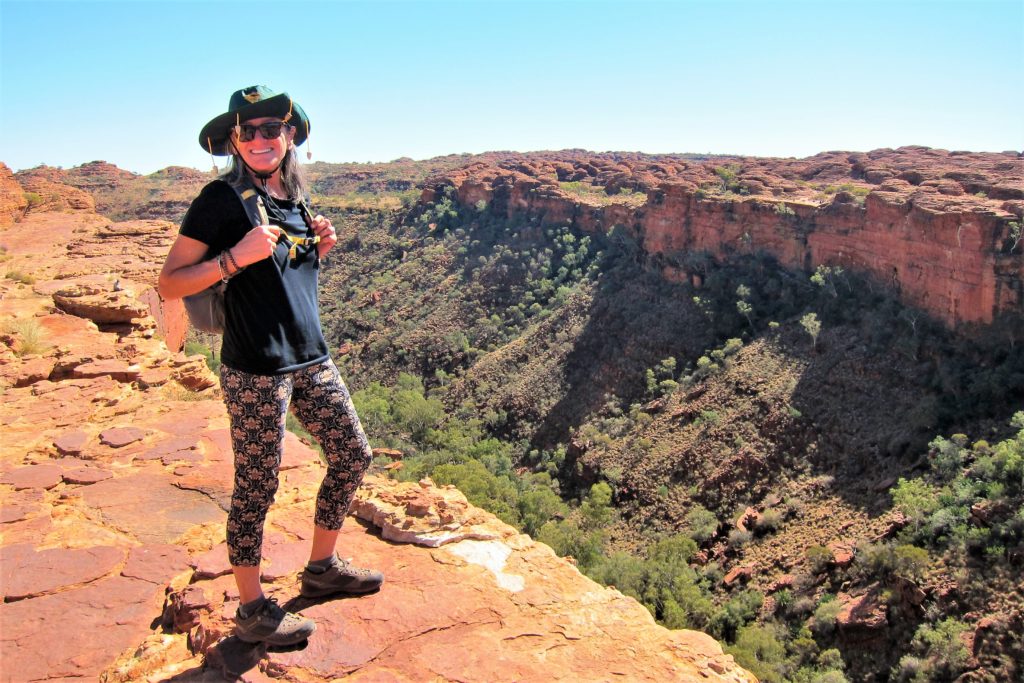
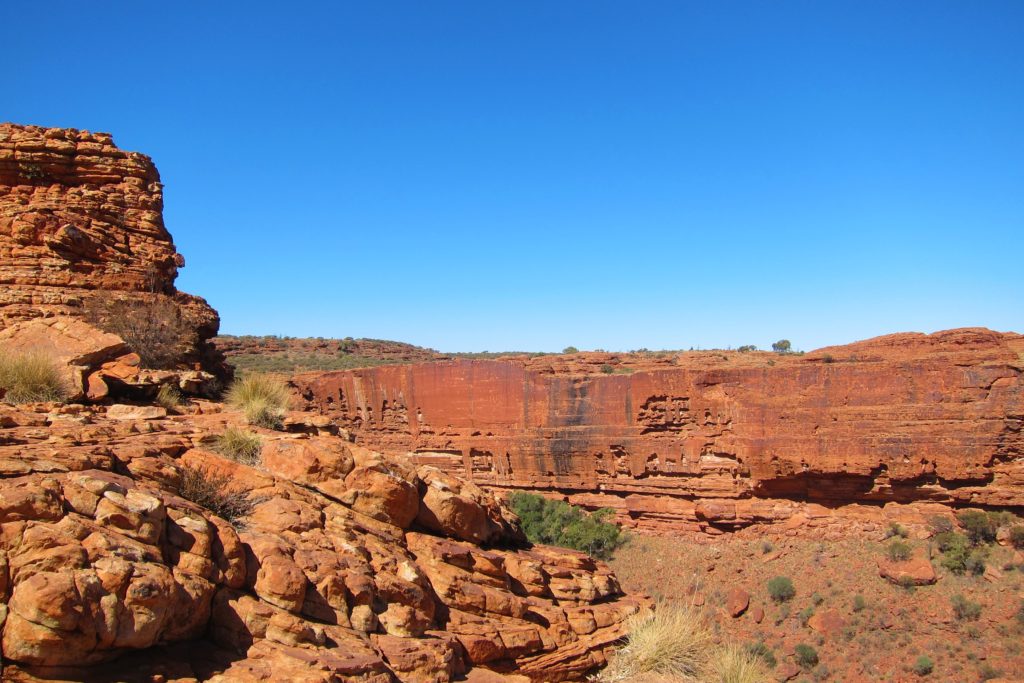
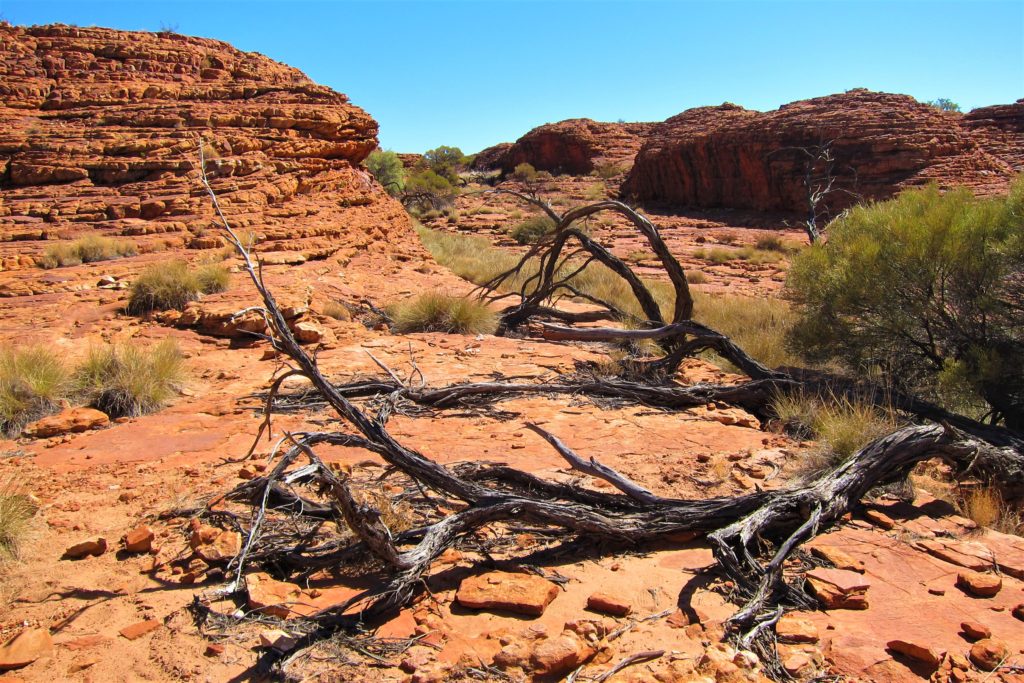
These are wave ripples in what used to be the bottom of a sea.
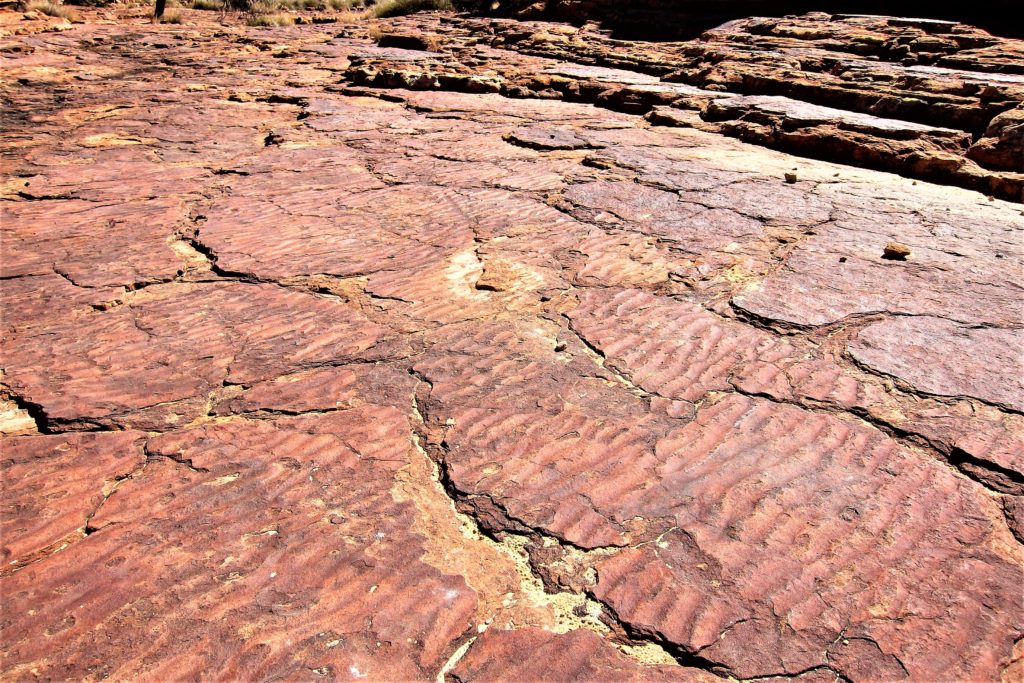
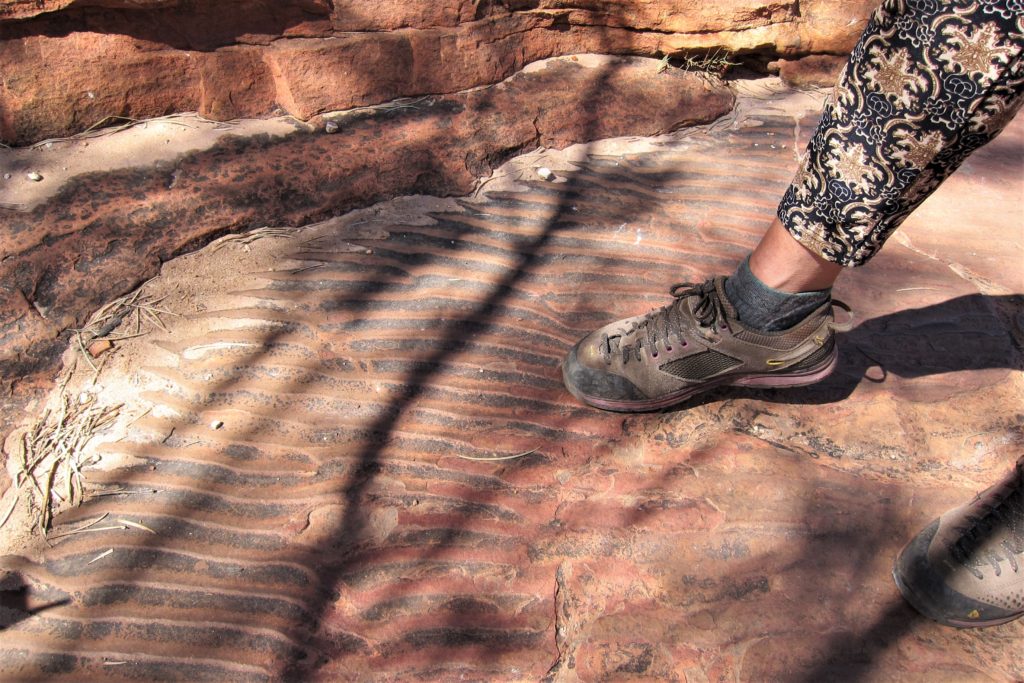
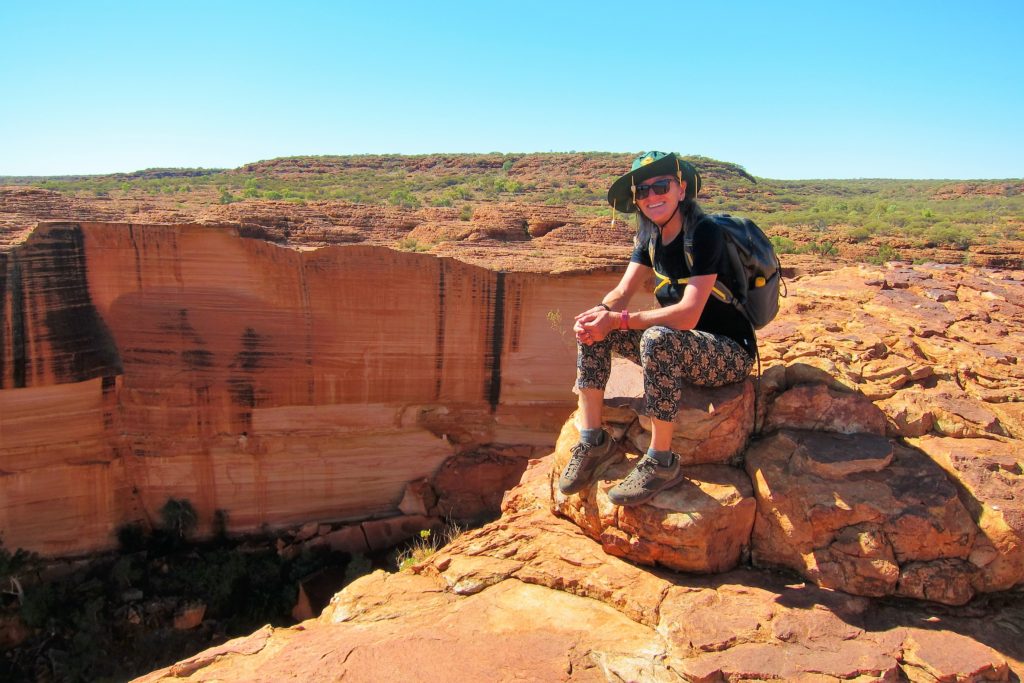
An exciting development – we are offered a heavily discounted helicopter ride. Neither of us have been in a helicopter before.
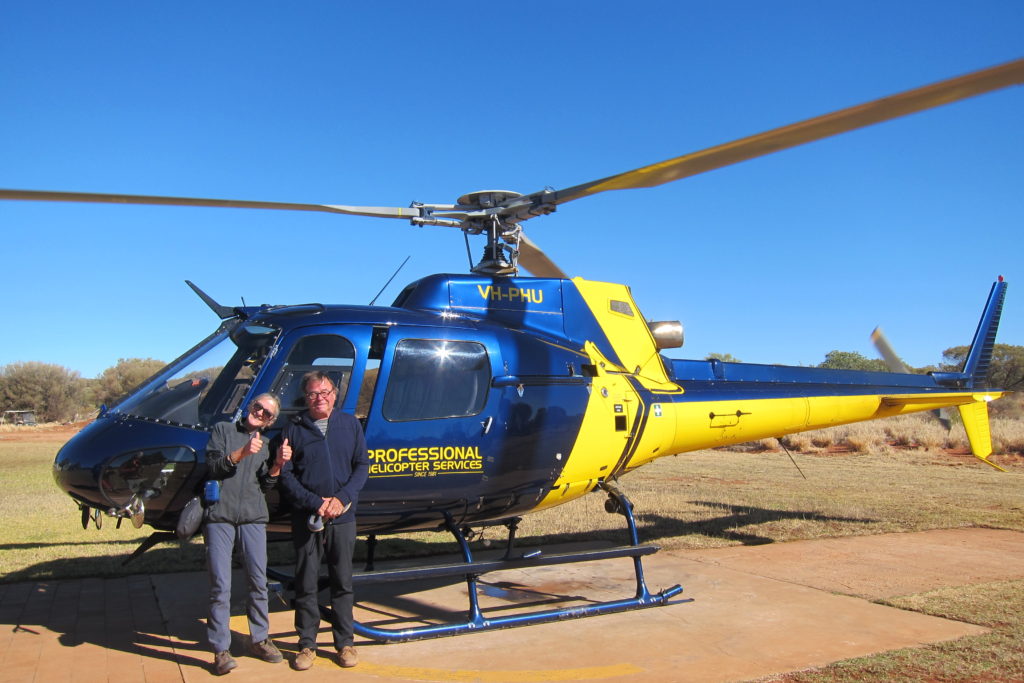
And off we go.
We spot Matilda in the caravan park. Of course, she’s parked sideways when everyone else parks straight in.
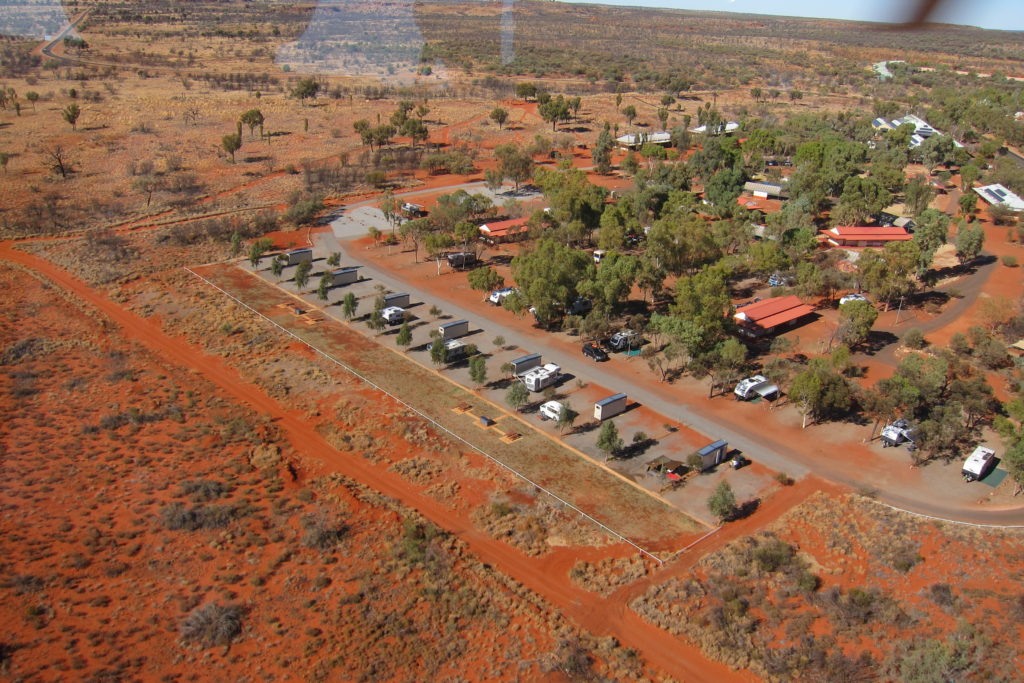
Aboriginal hamlet of Lilla. Population 15.
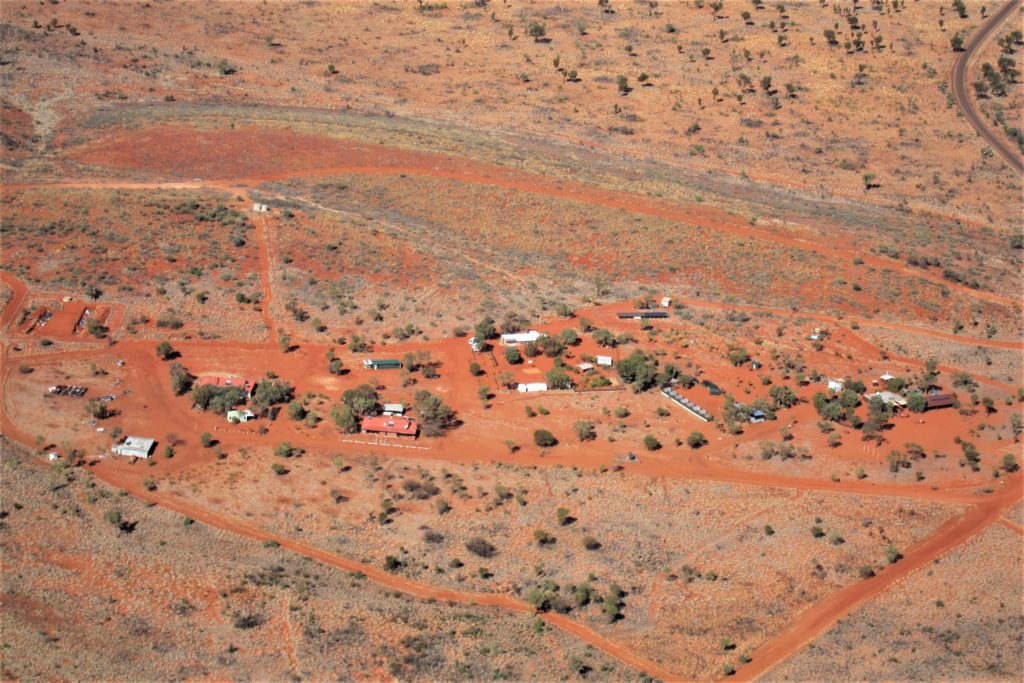
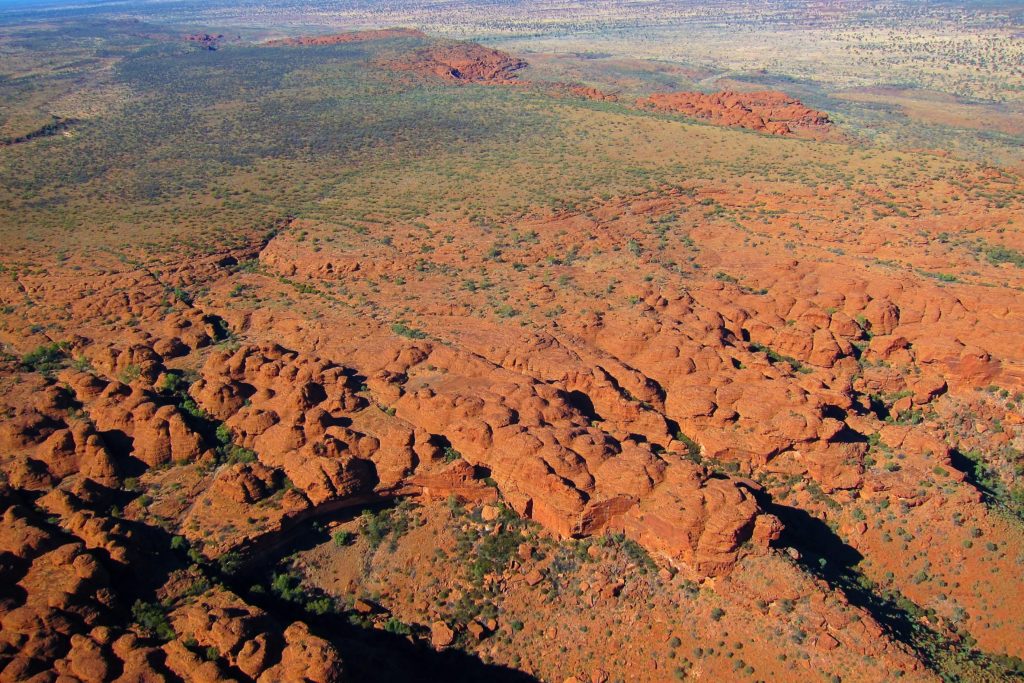
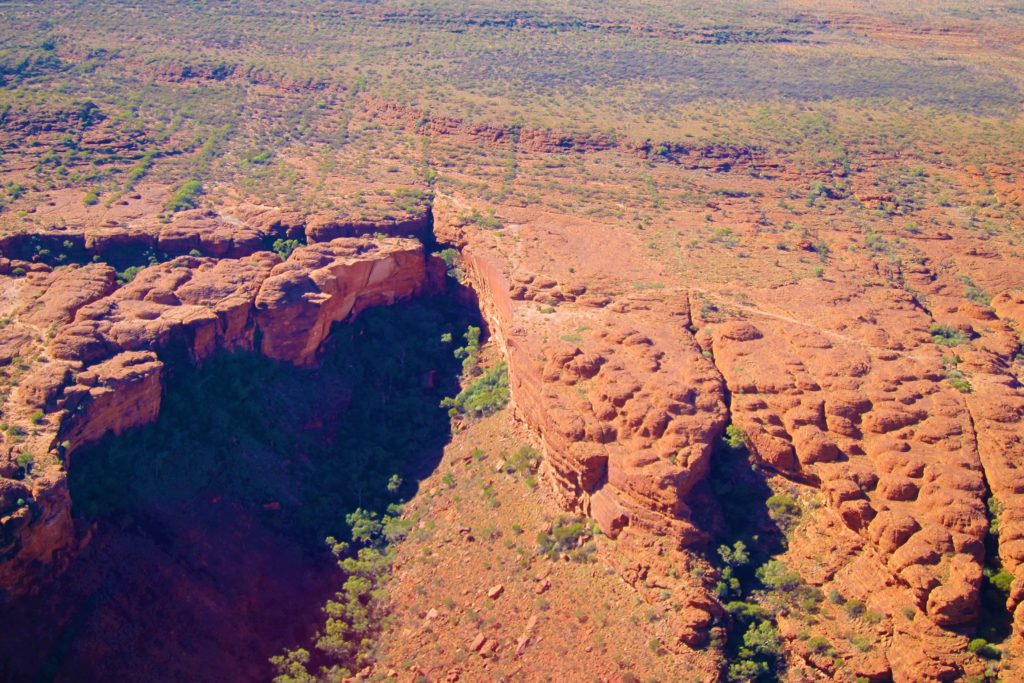
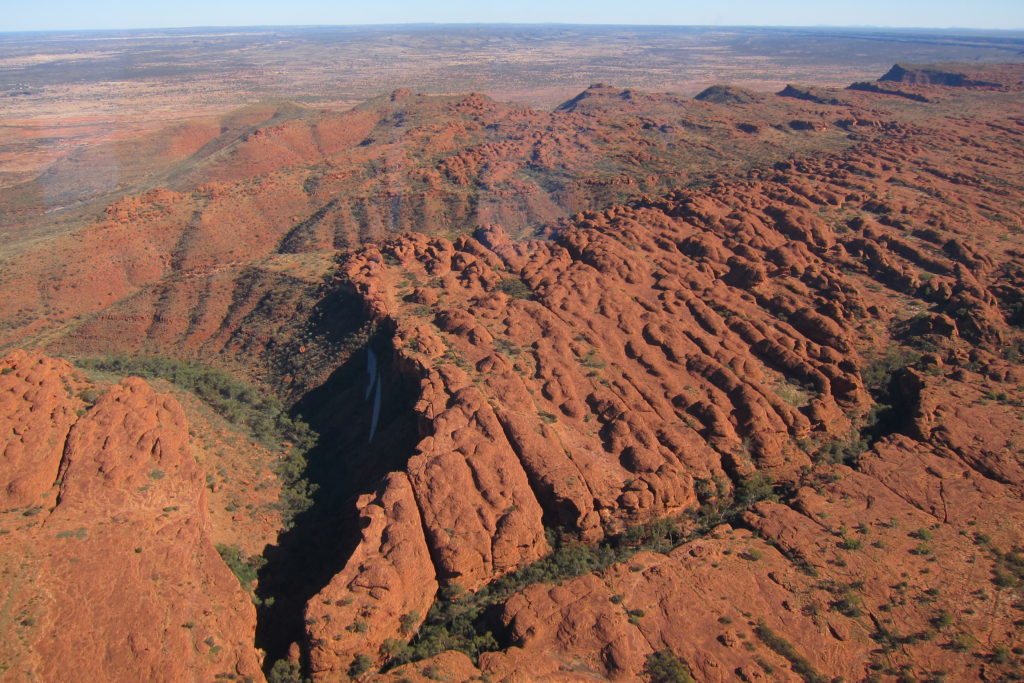
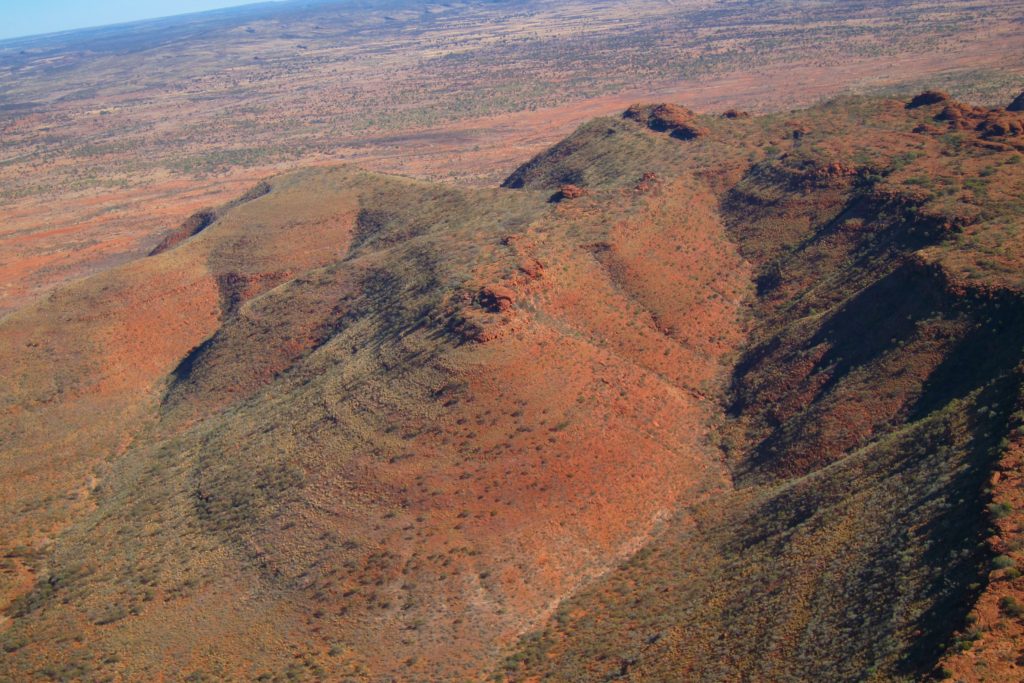
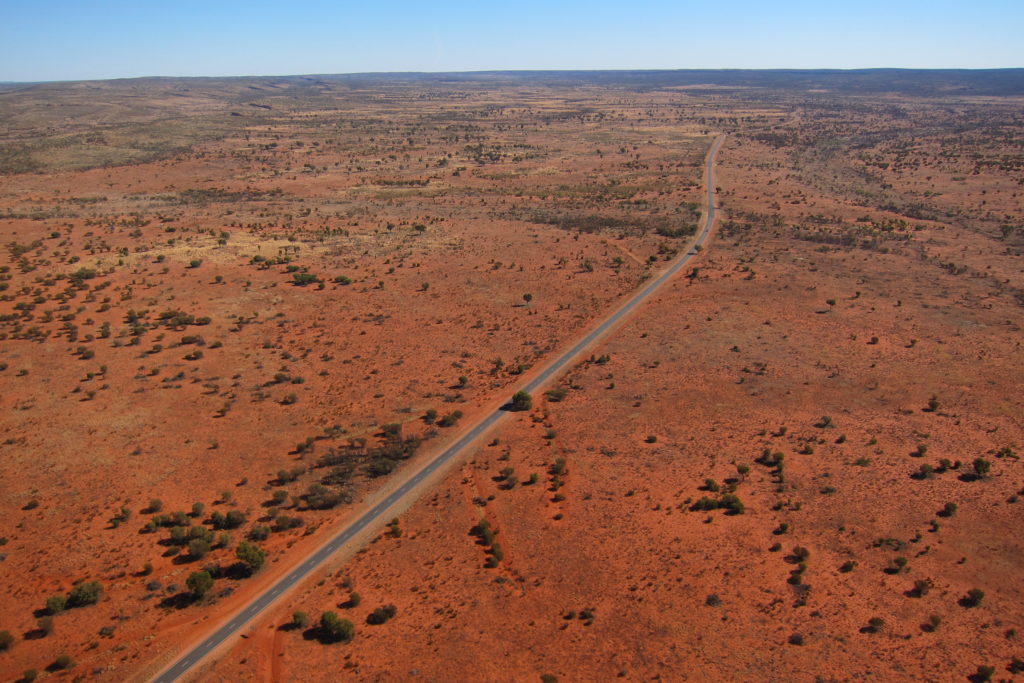
Nothing like a ride in a helicopter to drive home the vastness and the emptiness of this part of the world.
A Tale of Two Dingoes – Red Centre
At the King’s Canyon caravan park, we notice several signs about dingoes.
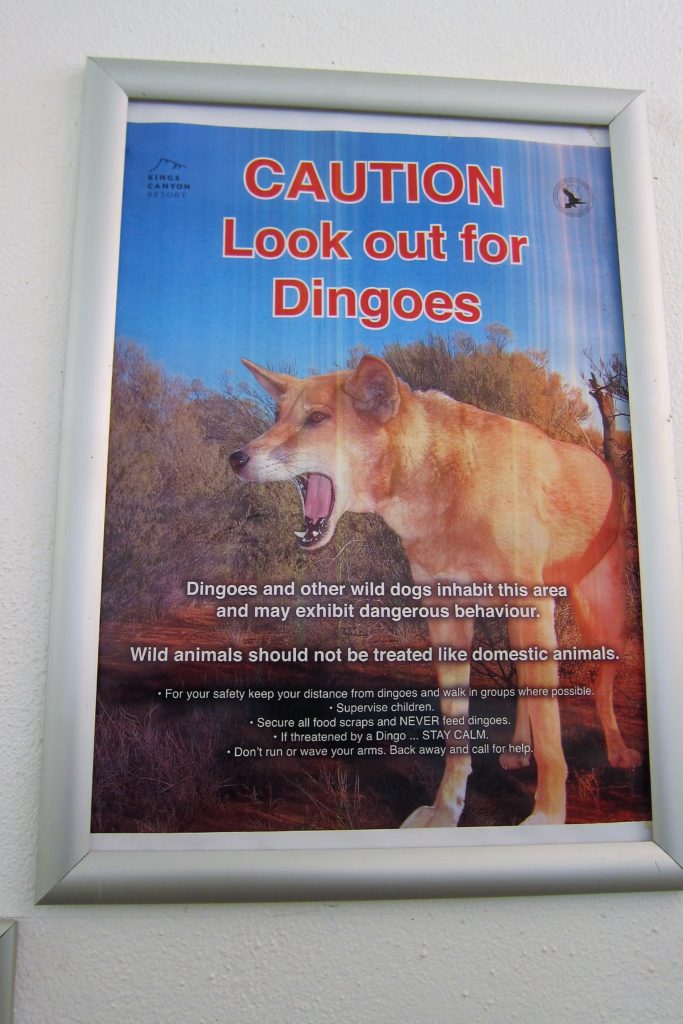
There are more signs around the park.
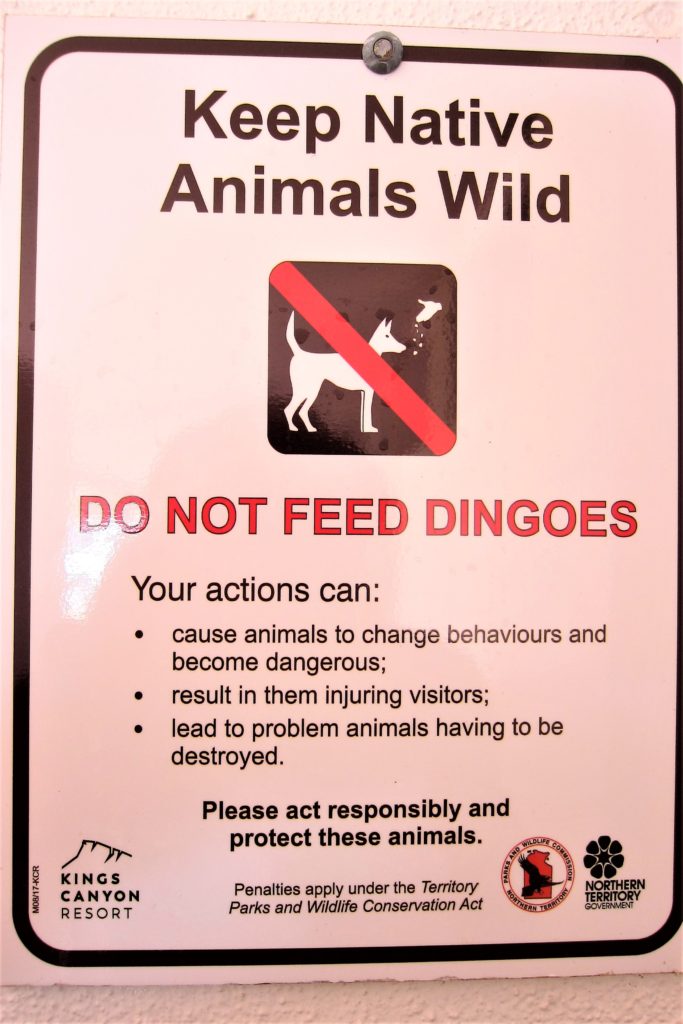
They even have anti-dingo gates in the ablutions blocks.
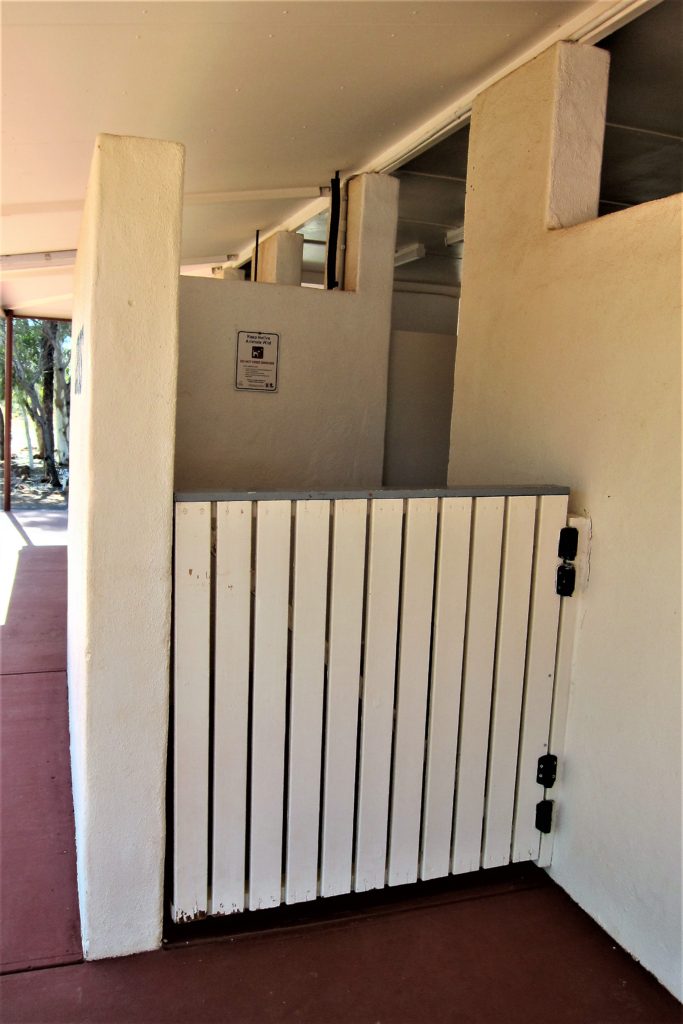
We think this is slight overkill. We haven’t seen any dingoes in the wild so far.
Imagine our surprise when we leave the car park at King’s Canyon to find a dingo casually loping along beside the road.
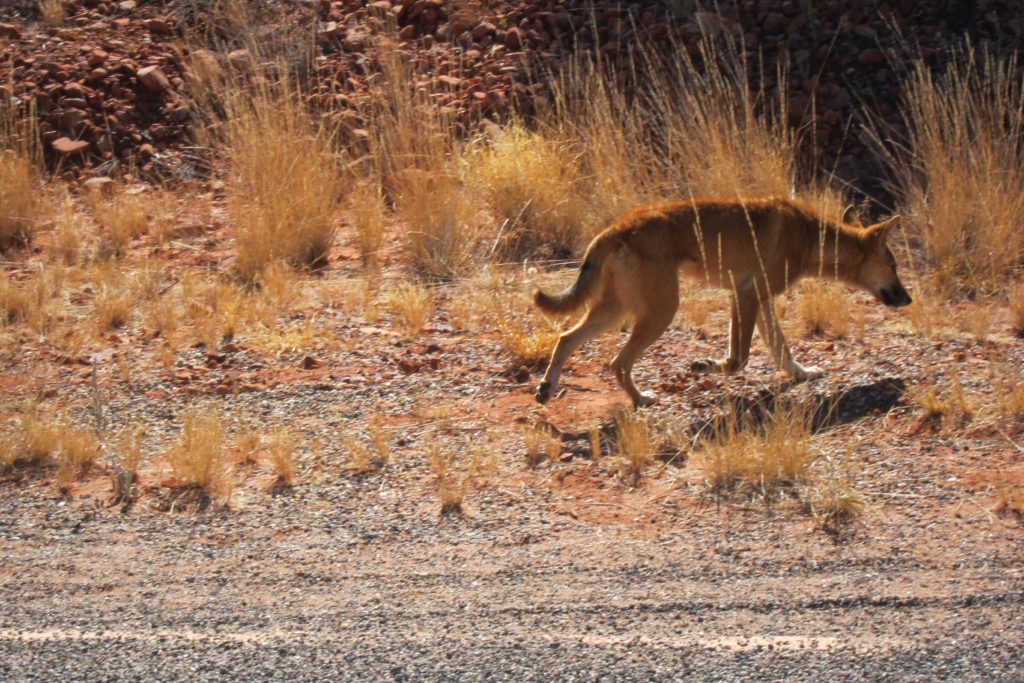
The same evening, we see another in our caravan park. It strolls across our path at a distance of three metres – twice – and pays us no attention at all.
This is interesting, because we just downloaded and watched A Cry in the Dark the previous evening.
